- Note-Taking/Study

43 Helpful Websites And Tools For Thesis Writing
Welcome to a compilation post on 43 helpful websites and tools for thesis writing, as well as any academic papers, including final year project thesis or dissertation and journal article.
Hi everyone!
My name is Nurul, a part-time master student from Master of Language Studies program that just passed her oral examination for Master Project .
Edit: I got my result last month. I’m happy to announce that I’ve completed my master study!
Congratulations to me!
To celebrate my success completing my master degree, I present to you all the website and tools that have helped me in writing my master thesis and academic writing paper.
1. Finding Journal Articles and Thesis
There are many websites to find peer reviewed journal articles and thesis, but for many students, it can be difficult to judge the journal trust worthiness and ensure that the journal that we’re going to cite in our paper or the journal article that we chose for article review assignment does not fall into the predatory journal category.
You can check the journal you visit and cross-check it with the list of Beall’s List of Predatory Journals , but who got the time to do that every single time you’re looking for an academic paper?
Your best bet is to search the keywords or topics in these following websites, as they’ve a reliable reputation in academic world. If you’re a student, the chance is your universities have already subscribed to some of these journals, which means you can access to these sites for free.
For UiTM students, ProQuest, ScienceDirect, Taylor and Francis Online and Emerald can be accessed using our student Email ID.
p/s: Google Scholar is good in terms of QUANTITY, but the QUALITY of certain websites are questionable , so keep it in mind.
- ScienceDirect
- Taylor and Francis Online
- Emerald Publishing
- SAGE Journals
- Atlantis Press
- Project MUSE
- Open Access Theses and Dissertations (OATD)
- Research Gate
- Academia.edu
- Google Scholar
- CiNii – Japanese Journal Articles and Theses
2. Malaysian University Thesis and Dissertation Repository
3. reference manager.
For reference manager, I’ve tried EndNote, Zotero, Mendeley and EasyBib and so far I found that Zotero works the best for me. It is open source, free and offers many plugins that will help you to manage your citations better.
Connected Papers is also a cool website as it showed you a graph of related research papers with the paper you’re searching for.
- Connected Papers
- Research Rabbit
- APA Citation Machine
4. Other Useful Sites to Summarize, Paraphrase and Grammar
- ProWritingAid
- Academic Phrasebank (a lifesaver)
5. Analyzing Qualitative and Quantitative Data
- SPSS (Quantitative)
- Atlas.ti (Qualitative)
- Nvivo (Qualitative)
6. Writing and Organization Tools
I use Notion to create my literature review matrix because I found that building it on Excel didn’t fit my aesthetic.
GoodNotes is where I annotated my papers on iPad and Obsidian, a fairly new software that I tried on, is for documenting website articles or any Reddit or Twitter posts that I found interesting for my research.
Important reminder, please BACK UP your writings and journal/thesis PDFs . I’ve heard a plethora of horror stories from other postgrads losing their data.
- Google Doc (backup)
- Microsoft Word (for writing drafts, mostly written on iCloud)
- Obsidian (Available on Mac, iPad and iPhone)
- Notion (Available on Mac, iPad and iPhone)
- GoodNotes (Available on Mac, iPad and iPhone)
- Notability (Available on Mac, iPad and iPhone)
That’s all from me, and I hope that this post will be helpful for your thesis writing journey. If you’ve any sites or tools to recommend, please do so in the comment section!
For other postgrads or students writing your thesis, good luck! If I, a student with tonnes of grammatical error, can pass my dissertation, you can do it too!
Related Tags
- Academic Writing
- Postgraduate
Blog on lifestyle, Japanese language study tips, digital note-taking, stationery haul and books. Also love Korean Webtoon and Chinese web novels.
I noticed the fascinating color design on Obsidian and it inspired me to update my own color design. Could you please tell us where you found the color scheme or what influenced you in choosing the colors?
Hi! I used a pre-built theme called Bubble Space and set it to dark theme.
Congrats dear for your very fine achievement! All the best in your future endeavours. I will definitely have a look at the above list when I have mustered enough courage to pursue a masters degree.
Leave a Reply Cancel reply
You may also like.
- 2 minute read
4 Free 2021 Digital Planners To Start A Productive New Year
New MacBook Air With M1 Chip Feat Unboxing Video

7 Must-Have Thesis Writing Tools in 2021
Writing tools like Grammarly, Mendeley online, Thesaurus, BibMe, Evernote, Plagiarism checker, Hemingway Editor, Stay Focused and Dissertation authors have significant importance in thesis writing.
Traditionally, writing a thesis for either PhD or dissertation was a tougher task, needing huge manual writing, Proofreading, correction, re-writing, and editing things manually.
So, it was tedious, time-consuming and depressive and therefore no one wants to go for a doctorate. However, the recent scenario is totally different, now we have computers, mobile phones and a lot of apps.
Things can be done at a fingertip, with one click and all done! Thanks to high-power computers and apps. “Useful” apps make tasks, work and everyday life easy for us.
We now have apps for writing, proofreading, arranging documents, taking instant and important notes, doing citation & referencing and other stuff during your research. This article explains how a PhD student can utilize apps that are useful. I will also explain how you can use it.
Features of Mendeley:
How to use mendeley , how to cite the work , features of evernote , how to use evernote , features of bibme are: , how to use bibme, how to use thesaurus , how to use dissertationauthers , features of grammarly: .
- How to use Grammarly?
Features of Hemingway Editor:
Wrapping up: , 7 must-have thesis writing tools in 2021, mendeley: .
Citing articles and enlisting references orderly isn’t an easy task; it’s time-consuming and tiresome. But what if a tool can do all this work seamlessly, effectively and precisely? Mendeley is that one tool you need.
Every PhD must have Mendeley- a reference manager tool. This app or web portal is exclusively designed to manage bibliography and citations therefore it must be there on every PhD students’ laptop.
Four amazing features of Mendeley are,
- You can store articles, PhD, journal reads on your Mendeley.
- It automatically creates a reference format.
- It can cite every bit of information seamlessly and precisely when integrated.
Meaning just read the article from Mendeley, write your content in MS word and just do insert a citation. It automatically inserts the related citation and reference at the end of the page.
Besides, several other features are,
- It automatically generates a bibliography
- You can import a pdf and research papers from other sources
- You can find the relevant articles to what you are reading
- You can collab with other researchers online
- You can access all your article libraries from anywhere by logging in to your account.
The Mendeley is developed by Elsevier Publication available on Windows, macOS and Linux.
- Go to www.mendeley.com from your computer
- Click on “create a free account”.
- Enter your email address and continue your work.
- Download the ‘Mendeley for desktop’ software
- Start adding reading materials, pdfs and research articles or create your own library.
- To use Mendeley for citation and referencing, first from your Mendeley app for tools and click on ‘Install MS word Plugin’.
- Go to MS word>> referencing and insert citation using the Mendeley.
Now you are ready to use, write literature from the article and just click on insert citation and your work is ready.
We are planning to write a whole article on the present topic, how to use it and how helpful it is, that article’s we will provide you later.
In summary, the very first software or app or tool every PhD student is required is Mendeley to write a thesis. It’s a citation and reference manager tool.
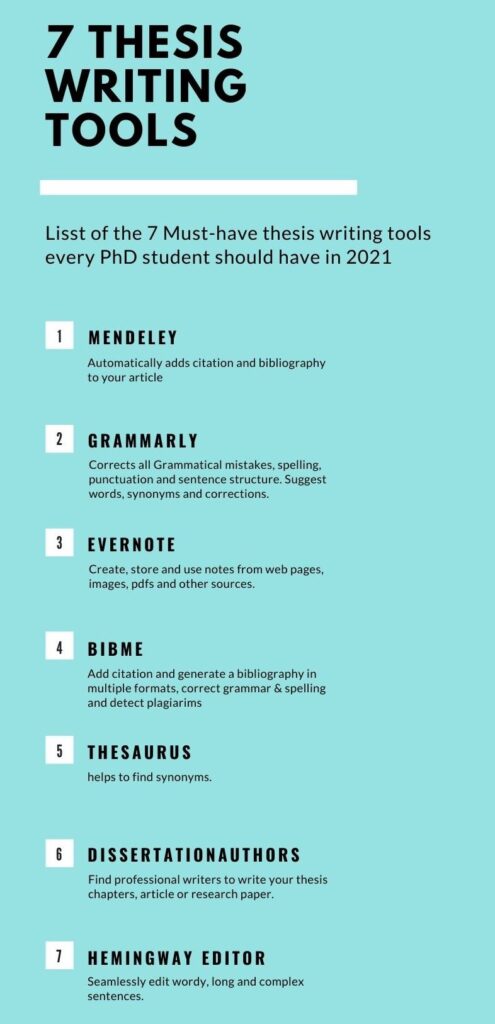
“Notes” as writing, images, pdf, article, news paragraph is an everyday part of a PhD student . Whatever you read, whenever you find things related to your PhD topic, you have to keep a note.
And trust me keeping notes isn’t so easy. If you fail to make it up, you will forget it the next morning. Evernote- is a tool that keeps your notes from desktop, mobile or any other device and syncs them.
- You can scan and save documents, label them, make important sentences underline and create pdf.
- You can even save rich notes, save images, record audio, capture ideas.
- You even can save entire or partial web pages.
- You can mark, highlight, underline, and pinpoint every note you capture.
- And guess what you can excess it from anywhere.
Go to www.evernote.com and click on sign in.
Now click on ‘create account’ and create one using your email address.
Or you can download the desktop apps.
In summary, to keep notes seamlessly and organized, the Evernote tool is required. Moreover, users can create keyboard shortcuts, note links, anchor notes to remember and share notes.
BibMe:
BibMe- The online writing center is the tool or service developed by Chegg. It has many features to improve your academic writing and PhD work.
One of the best features it has is it cites your work using different styles, even using their recent version of the style.
- You can create accurate citations in multiple styles
- Insert citation and references in your article or paper
- Improve your writing by improving sentence structure, grammar and spelling
- It can also detect plagiarism and can correct it.
Go to www.bibme.org .
Click on ‘Create account’. Create your account using your email address and use their features.
In summary, a BibMe app is an excellent tool, however, it isn’t available as a plugin for MS Word. You can use the free version or can use the paid version to explore more features.
Thesaurus:
Academic writing should be professional and precise, one needs to choose the correct word as per the sentence requirement. Using Thesaurus you can find synonyms of various words.
Besides, You can find antonyms and choose acronyms and abbreviations.
Go to www.thesaurus.com .
Click on synonyms and type your word in the search box.
In summary, Thesaurus makes your writing impressive when you use synonyms and transient words.
Disserationauthors:
Writing a research paper, review article or thesis is quite hard for a novice, you may feel helpless sometimes when your writeup is rejected multiple times. Even if you don’t understand what is wrong with your part.
If you feel so, don’t worry you can hire writers, experts or writing assistance who helps you. Dissertationauthors hire expert writers for you basically from the USA and UK.
- Go to www.dissertationauthors.com .
- Fill the order form
- Pay for your write up or paper
- Reach your personal writer
- Download your completed work
In summary, students have to write their own stuff, however, if your writing isn’t of that level you can use this service.
Grammarly:
Grammar, spelling and synonyms are common problems every research student faces, specifically those who aren’t from a pure English background. Imagine, what if some software or tool can do all stuff automatically!
Grammarly is exactly that one tool. They have free and paid plans available, however, the free version is enough for most students.
It has many services in which the Google chrome “add on” extension is the best. When activated it automatically detects and corrects English problems to all documents.
Related article: Grammarly: Your PhD writing assistant
- Correct spelling and Grammer
- Correct wordy sentences
- Suggest punctuations
- Structurize the sentence
- Check plagiarism
- Adds more transient words and synonyms
- And a lot more…
Read more: How to Check Plagiarism for PhD Thesis?- Top 10 Plagiarism Checkers
How to use Grammarly?
- Go to www.grammarly.com
- Sign in or sign up for your account.
- Go to the Google chrome extension search for Grammarly.
- Add Grammarly to your chrome extension.
- Do a quick setting as per your requirement.
In summary, Grammarly is the one tool or software that must be present on every PhD fellow’s laptop. Its technology is based on AI, meaning as you write more, it understands your style more and suggests accordingly.
Moreover, it also mails you your performances, common problems and how you can improve.
Hemingway Editor
This software is somehow similar to Grammarly, however, it has something unique in it. It’s an online editor you can use to quickly edit your article. It finds common errors, sentence structure, and grammatical mistakes.
It corrects it precisely. Several common features are enlisted here,
- Highlight lengthy and complex sentences, and corrections
- Finds common writing errors
- Finds active or passive voices.
- It denotes each error with a different color quote.
- It can also add headings, count the number of words and other things.
In summary, It’s not that impressive software for the students but can help especially to correct complex sentences. It is useful for bloggers.
Apps and Softwares make your everyday life easy and when you are in PhD, it becomes so important to make things easy. You should visit and use all this Softwares and its tools.
However, as per my opinion research candidates should have at least Grammarly, Mendeley and Evernote. These three are enough to do a lot of work.
Use Mendeley for citation, bibliography generation and other PhD stuff, Grammarly for writing assistance and Evernote for keeping notes and important things.

Dr. Tushar Chauhan is a Scientist, Blogger and Scientific-writer. He has completed PhD in Genetics. Dr. Chauhan is a PhD coach and tutor.
Share this:

- Share on Facebook
- Share on Twitter
- Share on Pinterest
- Share on Linkedin
- Share via Email
About The Author

Dr Tushar Chauhan
Related posts.
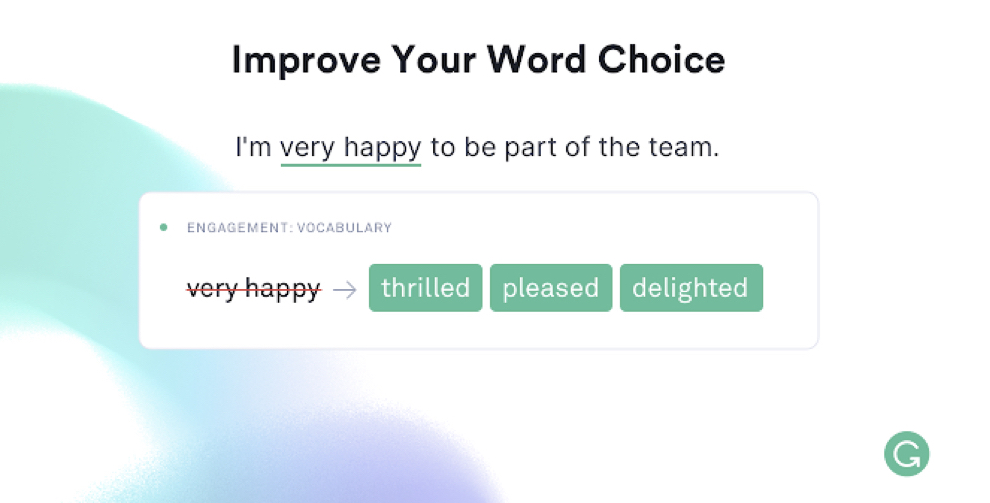
Grammarly: Your PhD writing assistant
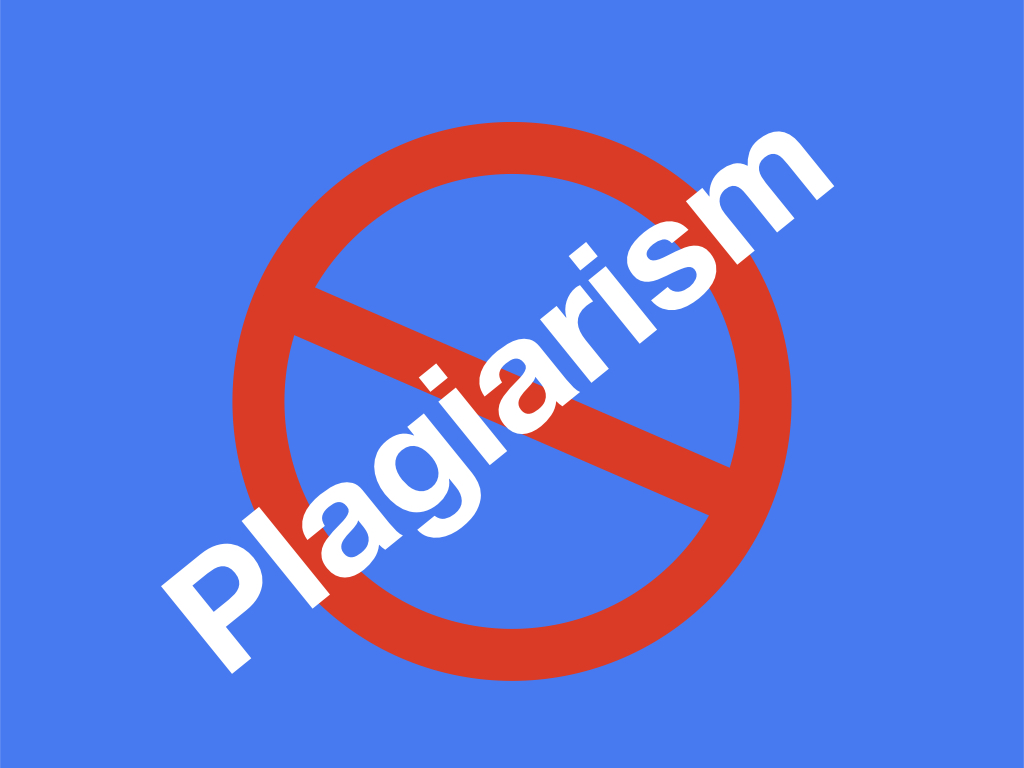
How to Avoid Plagiarism in Your PhD Thesis?
Leave a comment cancel reply.
Your email address will not be published. Required fields are marked *
Save my name, email, and website in this browser for the next time I comment.
Notify me of follow-up comments by email.
Notify me of new posts by email.
Thesis Help: 95 Best Online Tools for Thesis Writing

Writing a thesis is like being sentenced to life and hard labor in libraries. Forget regular working hours or your natural right to sleep and rest. Only successful defense of your project will break you free.
- Word Processing and Taking Notes
- Knowledge Management
- Student Planners
- Bibliography Helpers
- Academic Research Tools
- Productivity Apps
- Vocabulary Builders
- Dictionaries
- Plagiarism Check
- Grammar and Style Check
The following free tools, however, provide a ray of hope. Draconian time management and supernatural self-organization can help you cope with your thesis faster. Optimize the process and enjoy the time you save.
📝 Word Processing and Taking Notes
Although you may be used to Microsoft Word, the following free alternatives can be of much help for thesis writing:
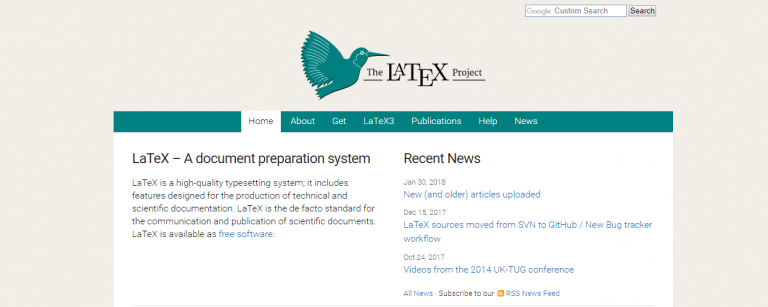
- LaTeX is a high-quality system equipped with special features for technical and scientific documentation. A great tool for thesis help due to its user-friendly interface and dozens of helpful features. For example, the tool automatically generates bibliographies and indexes.
- LyX is a free document processor that emphasizes the importance of document structure.
- Scrivener is a popular text-editing tool for Windows users. Use one of several templates to construct your document. There are also labeling options available during the working process.
- XMind is an easy-to-use text-editing and mind-mapping tool. Develop essay maps with this paper editor you can use on an iPhone or iPad for creating, editing, and storing your files.
- OpenOffice is free and intuitive editing software popular with students. Try this excellent writing tool you can easily use instead of Microsoft Word. It gives similar functions for typing, formatting, and revising.
- AbiWord is a free word processing program similar to Microsoft Word and suitable for a wide range of academic tasks.
- Jarte is a free word processor that is based on Windows WordPad and fully compatible with Windows Word.
- Google Docs is Google’s awesome service that allows you to create, format, store, and share documents online.
- ThinkFree is a free Java-based word processor that is fully compatible with Word.
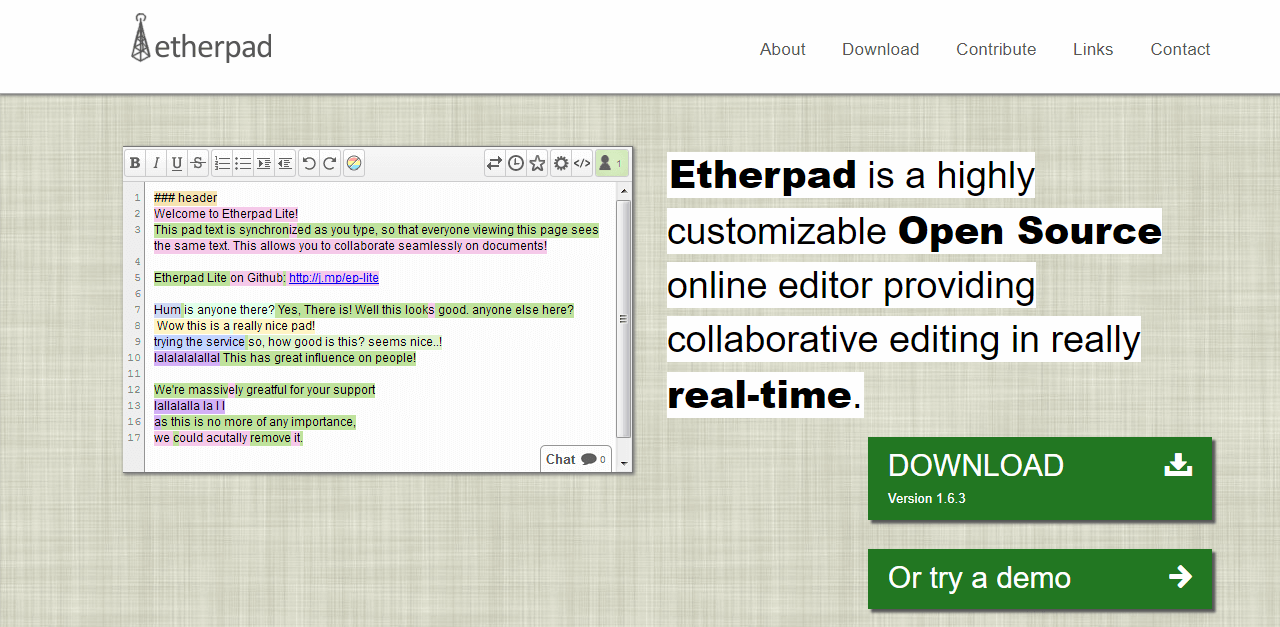
- Etherpad is an open source text editor that allows real-time collaborative editing online. You and your mentor can use this tool for online revision of your thesis.
🧠 Knowledge Management
Here’s the kicker:
While doing research for your dissertation, you will need to dig through an incredible amount of literature. Maybe even look at some free college essays examples.
To make your job easier without getting lost or wasting time, consider the following knowledge management tools — they are great for dissertation help.
- KeepNote is a particularly effective note-taking application that can help you use full-text search and store your findings and notes.
- TomBoy is a free and easy-to-use note-taking and mind-mapping application. When making an analysis of sources or gathering articles in one place, it’s easy to get lost in dozens of links. Tomboy allows you to store every link carefully and have access to them anytime from your desktop.
- TiddlyWiki is a knowledge management app with a number of helpful features of much help for your thesis.
- Mindnote is an effective mind-mapping tool that can help you organize your thoughts intuitively.
- Mendeley is a tool that allows you to create your own easily searchable library of your research findings and accessible from any device.
- VUE stands for Visual Understanding Environment. This tool can be used for structuring and sharing information.
- EyePlorer is a convenient tool for creating charts and mind maps online. You can just drag in your thesis statement’s keywords and get the results.
- Zotero is a valuable academic research and knowledge management tool that combines functionality of a citation maker and knowledge management.
- Endnote can help you find, save, and share the information you need. You can work on a document with your team, see the history of changes, and get your sources cited in one of 6,000 styles.
- Cam scanner is probably one of the easiest ways to save bibliographic information by simply “scanning” a resource with your phone or any other device.
⌚ Student Planners
In being preoccupied with your thesis, you may easily forget something. The following free tools will help you be better organized:
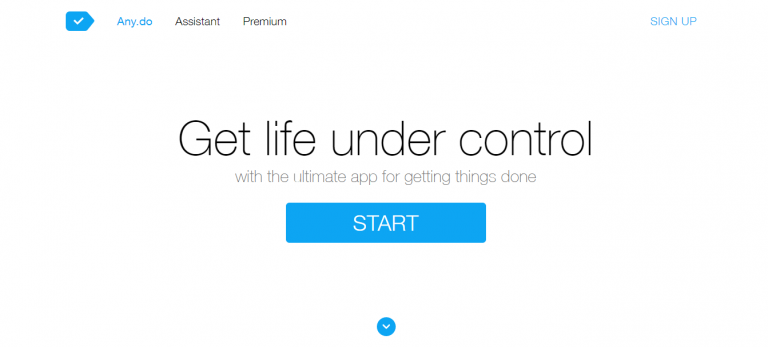
- Any do can synchronize your personal tasks and help you achieve maximum potential.
- Trello can help you see everything about your project in one place.
- Exam Countdown is a free and easy-to-use app to keep track of all your deadlines. Thesis development consists of many parts. Don’t miss any of them with this helpful and vivid tool.
- Wunderlist is a tool for ticking off all your personal and academic goals.
- Todoist is a free online task manager that will kindly remind you of approaching deadlines.
- Tomsplanner is an online chart to help you get things done.
- HabitRPG is a free productivity app that treats your life like an exciting game. Habitica is an RPG game that not only motivates you to start a thesis but also helps with everyday routines like cleaning your room or getting enough sleep.
- Todokyo is a simple way to create to-do lists online.
- Ta-da Lists will help you reach those amazing “ta-da” moments with all your daily and weekly tasks.
🙋 Bibliography Helpers
Collecting resources and formatting citations is important for your dissertation writing, but imagine letting free citation tools do that work for you! Make this academic dream come true with our past list of the top 25 free online best citation generators , or check out the following collection of free tools:
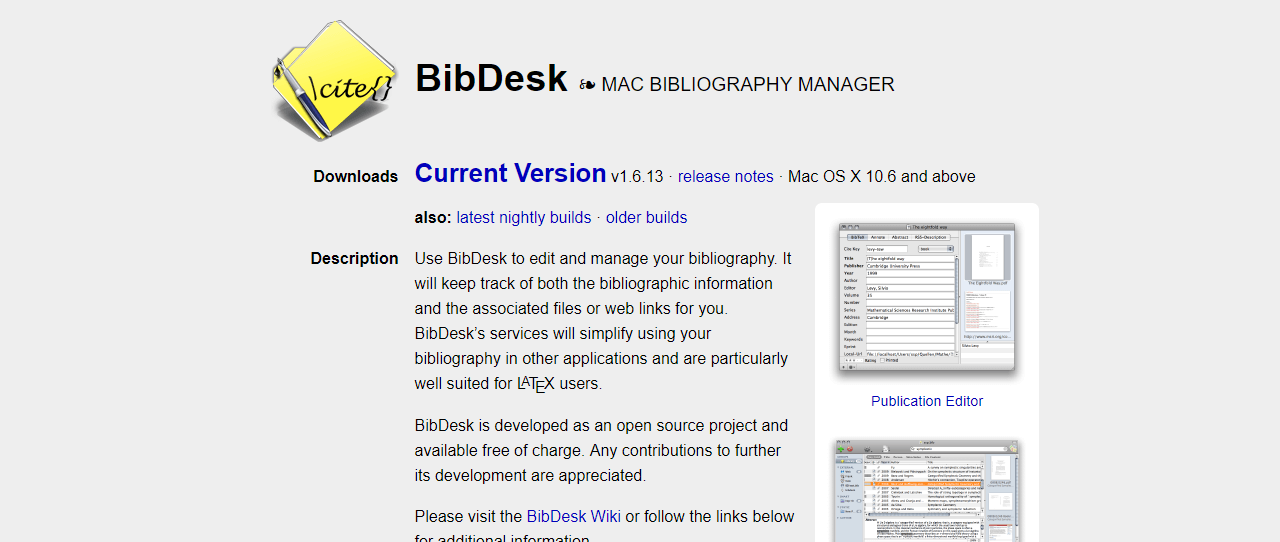
- BibDesk will help you edit and manage your bibliography. This tool can help you keep track of not only bibliographic information but also related links and files.
- BiblioExpress will help you find, manage, and edit bibliographic records.
- Docear is a free academic literature management suite that helps you discover, organize, and cite your resources.
- Recipes4Success is an open source bibliography maker that formats citations in MLA and APA. It works as a rewording generator—you fill in the fields, and the tool gives you a full sentence in one of the most popular citation styles.
- Ottobib is a free, easy, and fast bibliography maker that allows formatting citations using only ISBN. If you use ISBN for your referencing, you can save a lot of time.
- Citavi is a free reference management and knowledge organization tool that can help to not only create citations but also organize and highlight text.
- Cite This for Me is an open source and easy-to-use citation maker that is compatible with a wide range of citation styles.
- GoBiblio is a free online citation maker that generates citations in MLA and APA.
🔬 Academic Research Tools
One more thing you will appreciate is an academic full-text research environment free of commercial links:
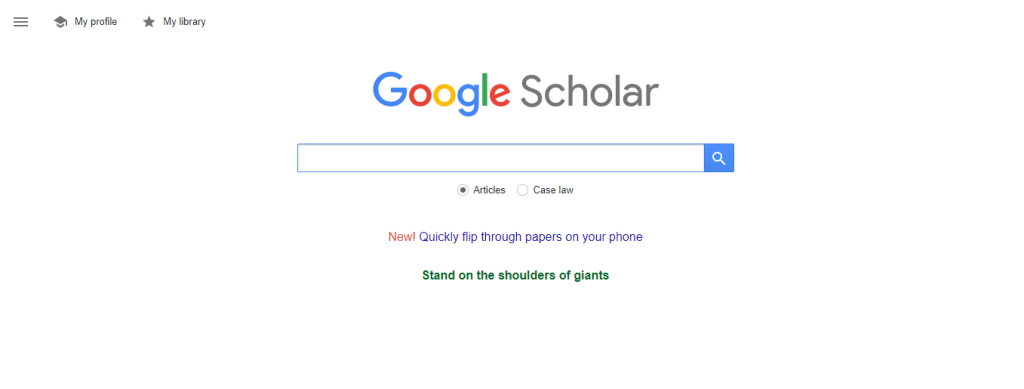
- Google Scholar is the place to start your online research that will help you with your thesis.
- ContentMine is a tool that extracts scientific facts from around a billion academic resources.
- Data Elixir is a twice-monthly digest of the latest scientific discoveries.
- Labii is a template-based electronic notebook. Keep all your data organized into categories like protocols, results, samples, and so on.
- LazyScholar is a free Chrome or Mozilla extension that will do an automatic full-text search and create fast citations.
- Scientific Journal Finder can help you access the latest and most relevant resources in your field.
- Scizzle is a fast and easy way to discover new papers on a topic of your choice.
- MyScienceWork is a platform for making your research papers visible to anyone on the web or getting access to research of others.
- Sparrho is a collection of scientific channels and an easily navigated search engine. It contains more than 60 million scientific articles, and the best universities in the world use it.
Working with sources and doing research may be rather exhausting.
Here’s the deal:
You have to work on your performance and productivity.
🏃♀️ Productivity Apps
Another important routine change that can save hours and days of your life is blocking or minimizing distractions:
- TimeDoctor is an easy to use time-tracking app that will prevent you from distractions and increase your productivity.
- Online timer by TimeCamp is a free and simple solution for measuring your work time divided by separate tasks.

- Freedom can help you block the most distractions
- SelfControl is a Mac app that will help you avoid distracting websites. Just block social media or news feeds that interfere with your work.
- Write or Die is a web-based app designed to boost your productivity by reaching a target word count within a chosen time frame.
- Focus Time is a combination of an activity tracker and a Pomodoro timer.
- Rescue Time promises to help you block all distractions. Control the choice of blocked resources or use the default list.
- Leechblock NG is a Firefox add-on that can block time-wasting sites.
- StayFocusd politely questions if you shouldn’t be working and helps you achieve that.
- Write Monkey is software that can create a distraction-free interface for simply writing.
- Nirvana will help you prioritize your tasks and get the most important ones done on time.
- Tomato Timer is a minimalist timer that will help you work according to the well-known Pomodoro technique (working 25 minutes before taking a 5-minute break).
📖 Vocabulary Builders
By the time you finish your project, you can undoubtedly boast of having a rich and diverse academic vocabulary. You may want to boost your vocabulary even further with the following tools:
- IntensiveVocab is a free tool designed to help you improve your vocabulary, score higher on standardized tests, and thus improve your dissertation’s language.
- WhichWord is an iOS app designed to help you better understand the difference between frequently confused words.
- Just the Word is an online tool to help you better combine words in a sentence. You enter “just the word” into a search line and receive examples of how that word can be used and other students’ errors.
- Lexipedia is a tool that creates semantic differences for a word of your choice. This tool organizes the results in a mind map. It’s available in English, German, French, Spanish, Dutch, and Italian.
- Wordnik is a free tool that will give you several definitions for a word of your choice.
- Wordhippo is an easy and quick way to find synonyms and antonyms for a certain word. You can also find rhymes, scrabble options, words with specific letters, and so on.
- SAT Vocab by MindSnacks is a free app that can help you learn SAT vocabulary and formulate more difficult sentences by simply playing games.
- Vocabulary Builder from Magoosh is a free app to quickly boost your vocabulary.
- Visual Vocab SAT is a free but effective app for building your vocabulary.
📚 Dictionaries
This collection of sources will make you thesis writing process easy and professional.
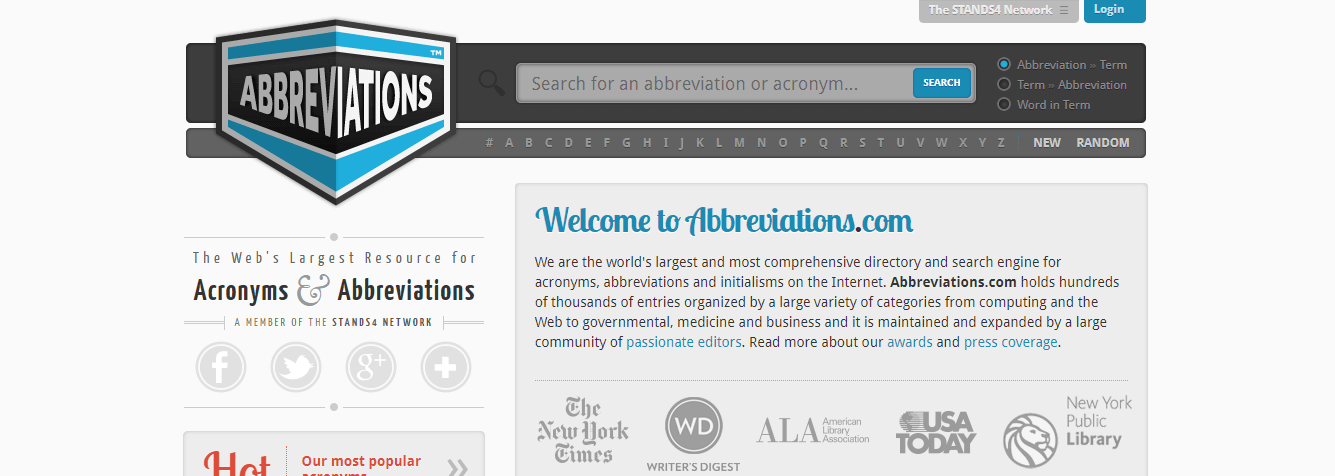
- Abbreviations is a huge directory of all abbreviations imaginable. It’s a vast library of acronyms and abbreviations in various fields like science, medicine, government, business, and more.
- Cambridge Dictionaries is a collection of free online English dictionaries and thesauruses including bilingual and semi-bilingual resources.
- Definitions is a multilingual dictionary that provides definitions from many reputable resources. It knows every word in many narrow fields like trees, dinosaurs, and ancient history.
- Macmillan Dictionary is an open source tool with activities and word lists to not only find the words you need but also learn them.
- Merriam Webster is a free dictionary with a variety of online quizzes and tests. It’s one of the most valuable online dictionaries.
- Thesaurus is an open source dictionary offering synonyms and definitions.
- Urban Dictionary is the go-to place for synonyms and definitions. This is the best place to search for slang words.
- Ozdic is a free online collocation dictionary. You can get a full analysis of a particular word you need to learn.
- YourDictionary provides simple definitions that anyone can understand.
✅ Plagiarism Check
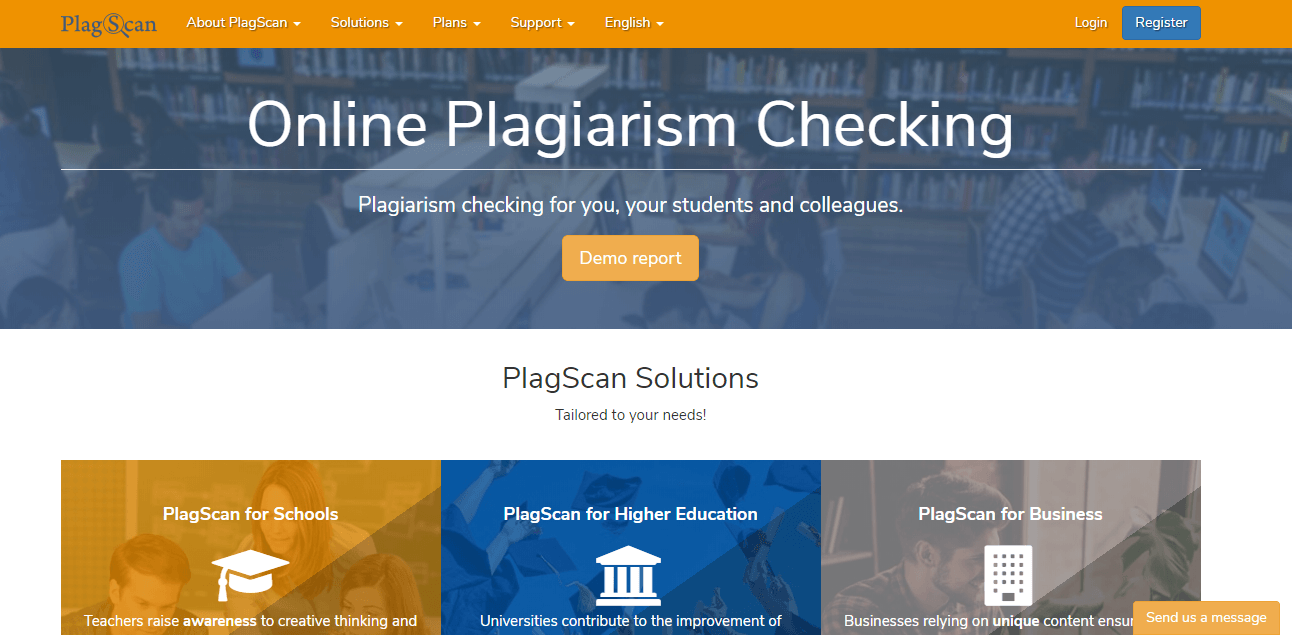
- PlagScan will compare your documents with billions of others.
- Article Checker is a free online plagiarism-checking tool that can search for copies of your text on the web.
- Duplichecker is a free plagiarism detection tool restricted to 1,000 words per search.
- PlagiarismCheck.org generates plagiarism reports and offers an unlimited number of free attempts.
- Plagium is a free, quick search that helps you detect instances of occasional plagiarism in your paper.
- Dustball is a free plagiarism detection tool that will easily find plagiarized parts in your text.
- ThePensters is free plagiarism-checking software for students and beyond. It analyzes the percentage of plagiarized text from web pages. Also, with the help of this tool, you can create a bibliography by ISBN code.
- PlagTracker is a convenient online plagiarism detection tool.
- Plagiarisma is another free online plagiarism checker. It supports about 200 languages, and you can switch between Google and Bing search engines when checking your documents.
- Copyscape will help you scan your thesis for any copies on the web.
✍️ Grammar and Style Check
Grammar and style checking of large amounts of text can last forever if you do it manually. The following free tools will make a world of difference for you:
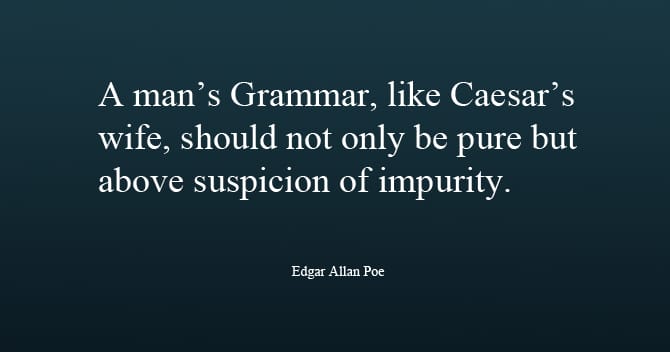
- Ginger is a quick and quality online grammar checker. This is a perfect tool to eliminate misspellings.
- Grammarly with its grammar, style, and plagiarism check is a must-have for students.
- AftertheDeadline is a spell, style, and grammar checker that promises intelligent editing.
- Spellchecker is a spell check solution with a 300-day free trial. Along with grammar mistakes, it shows misused words and syntax errors.
- Online Correction is a tool for detecting style, spelling, and grammar mistakes in writing.
- Spell Check Online is a website for quick spell check online.
- Paper Rater is a free tool that offers online proofreading and does not require download.
- Grammar Check.me is a way to check and correct style, grammar, and spelling of your text online.
- Language Tool is an open source tool for style and grammar check.
Would you like to add some tool to this list? Which free apps and websites help you with your thesis?
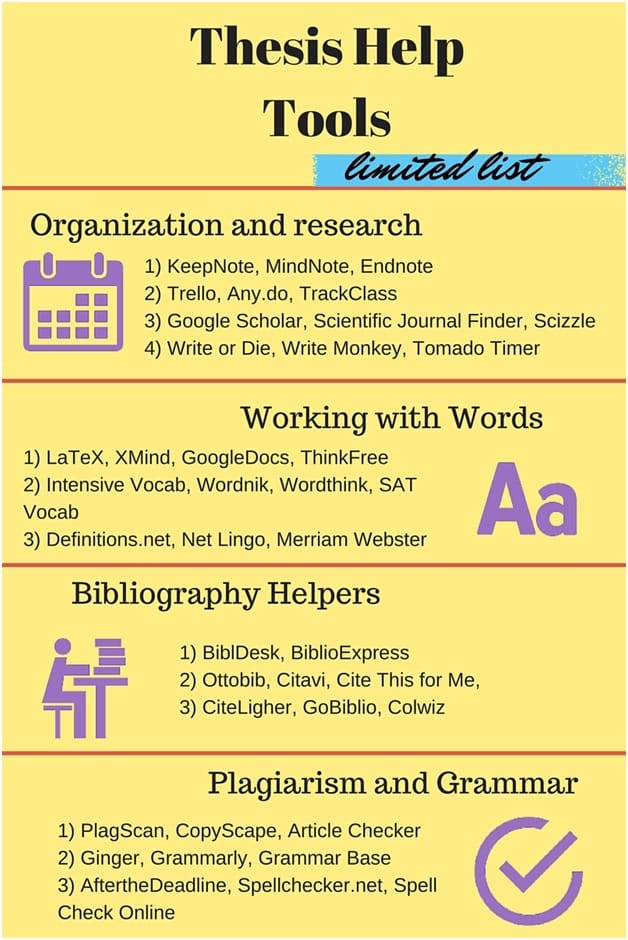
- Share via Facebook
- Share via Twitter
- Share via LinkedIn
- Share via email
I got 64 % similarity for my assignment. is it bad or good? if it’s bad please tell me how to fix it?
Thanks for these helpful Tools.
Thanks for the feedback! Much appreciated.
Wow good bro
Thanks for the feedback!
Thanks for the feedback, Abderrahmane!
Hi, I would like to ask you about the thesis for Diploma
Hello! Sure, please do not hesitate to ask our experts ivypanda.com .
I’m glad, your message via Twitter brought me here and I really found your blog so helpful. Cheers!
Thank you for your kind words! 🙂
Wow right time, thanks for such a great article. Helpful.
Melik, I’m glad the article was helpful to you 🙂
If you are going for ‘fancy stuff’ you might mention markdown, rmarkdown/knitr etc. This will replace latex imho.
And if you mention Latex you should mention Overleaf (an online version and a way to learn it).
Overall though, a very interesting list. Do you rate/rank these tools?
Thank you for the feedback, David!
OUTSTANDING!!!
Thank you for putting this together.
Thank you very much, Michele 🙂
Thanks regarding furnishing this kind of well put together content.
Thanks for your feedback, Mandila! Glad you liked it!
That’s an apt answer to an interesting question.
Thanks for stopping by. I hope these tools are really helpful to you. Good luck!
While Sandel argues that pursuing perfection through genetic engineering would decrease our sense of humility, he claims that the sense of solidarity we would lose is also important.
This thesis summarizes several points in Sandel’s argument, but it does not make a claim about how we should understand his argument. A reader who read Sandel’s argument would not also need to read an essay based on this descriptive thesis.
Broad thesis (arguable, but difficult to support with evidence)
Michael Sandel’s arguments about genetic engineering do not take into consideration all the relevant issues.
This is an arguable claim because it would be possible to argue against it by saying that Michael Sandel’s arguments do take all of the relevant issues into consideration. But the claim is too broad. Because the thesis does not specify which “issues” it is focused on—or why it matters if they are considered—readers won’t know what the rest of the essay will argue, and the writer won’t know what to focus on. If there is a particular issue that Sandel does not address, then a more specific version of the thesis would include that issue—hand an explanation of why it is important.
Arguable thesis with analytical claim
While Sandel argues persuasively that our instinct to “remake” (54) ourselves into something ever more perfect is a problem, his belief that we can always draw a line between what is medically necessary and what makes us simply “better than well” (51) is less convincing.
This is an arguable analytical claim. To argue for this claim, the essay writer will need to show how evidence from the article itself points to this interpretation. It’s also a reasonable scope for a thesis because it can be supported with evidence available in the text and is neither too broad nor too narrow.
Arguable thesis with normative claim
Given Sandel’s argument against genetic enhancement, we should not allow parents to decide on using Human Growth Hormone for their children.
This thesis tells us what we should do about a particular issue discussed in Sandel’s article, but it does not tell us how we should understand Sandel’s argument.
Questions to ask about your thesis
- Is the thesis truly arguable? Does it speak to a genuine dilemma in the source, or would most readers automatically agree with it?
- Is the thesis too obvious? Again, would most or all readers agree with it without needing to see your argument?
- Is the thesis complex enough to require a whole essay's worth of argument?
- Is the thesis supportable with evidence from the text rather than with generalizations or outside research?
- Would anyone want to read a paper in which this thesis was developed? That is, can you explain what this paper is adding to our understanding of a problem, question, or topic?
- picture_as_pdf Thesis
Go From Confused to Confident
Join a short course to kickstart your dissertation today

Learn how to craft a clear, convincing research proposal from scratch. Includes our popular proposal template.

Learn how to craft a literature review that lays a rock-solid foundation for your project. Includes free chapter template .

Get a big-picture view of the key methodological concepts, challenges and decisions needed to craft a strong study.

What Is A Bootcamp?
Bootcamps are short, easily digestible and action-centric online courses that help you fast-track your dissertation or thesis, the smart way.
Our Bootcamps are focused on action, not theory . Throughout each course, we focus on practical actions that you can take to move your project forward, no matter your level of experience.
If you’re someone who wants to take action and optimise their approach to the dissertation writing process, our Bootcamps are for you.
Why Join A Bootcamp?
Get a comprehensive, big-picture understanding in less than 4 hours
Fill in the gaps in your knowledge and understand the linkages and connections
Get step-by-step guidance (and loads of resources) to complete your project
Gain the knowledge you need to approach your project with confidence
What Our Students Say
Over 5000 students have joined our courses. Here’s what some of them have to say:
Explanations were clear, and concise. The course is well-structured enabling me to see the progress of the chapter. Thank you.
Fantastic course, well worth the time, effort, and expense. Highly recommended for anyone starting their research journey.
The lessons are really enlightening and I’m improving my knowledge on research. Thanks to GradCoach
The course provided is incredibly comprehensive, offering a well-structured breakdown of content into manageable chunks. The instructor’s upbeat and pleasant demeanor throughout the class enhances the learning experience. The course effectively caters to both fundamental requirements for proposal writing and research as a whole.
I am learning so much about more than just the proposal. This applies to academic writing on other levels, for example, thinking about the verbs we use in discussion. Also, my confidence is growing as a mature student returning to full-time academia after a long break. This course is a gem.
Have A Question?


Thesis Statements
What this handout is about.
This handout describes what a thesis statement is, how thesis statements work in your writing, and how you can craft or refine one for your draft.
Introduction
Writing in college often takes the form of persuasion—convincing others that you have an interesting, logical point of view on the subject you are studying. Persuasion is a skill you practice regularly in your daily life. You persuade your roommate to clean up, your parents to let you borrow the car, your friend to vote for your favorite candidate or policy. In college, course assignments often ask you to make a persuasive case in writing. You are asked to convince your reader of your point of view. This form of persuasion, often called academic argument, follows a predictable pattern in writing. After a brief introduction of your topic, you state your point of view on the topic directly and often in one sentence. This sentence is the thesis statement, and it serves as a summary of the argument you’ll make in the rest of your paper.
What is a thesis statement?
A thesis statement:
- tells the reader how you will interpret the significance of the subject matter under discussion.
- is a road map for the paper; in other words, it tells the reader what to expect from the rest of the paper.
- directly answers the question asked of you. A thesis is an interpretation of a question or subject, not the subject itself. The subject, or topic, of an essay might be World War II or Moby Dick; a thesis must then offer a way to understand the war or the novel.
- makes a claim that others might dispute.
- is usually a single sentence near the beginning of your paper (most often, at the end of the first paragraph) that presents your argument to the reader. The rest of the paper, the body of the essay, gathers and organizes evidence that will persuade the reader of the logic of your interpretation.
If your assignment asks you to take a position or develop a claim about a subject, you may need to convey that position or claim in a thesis statement near the beginning of your draft. The assignment may not explicitly state that you need a thesis statement because your instructor may assume you will include one. When in doubt, ask your instructor if the assignment requires a thesis statement. When an assignment asks you to analyze, to interpret, to compare and contrast, to demonstrate cause and effect, or to take a stand on an issue, it is likely that you are being asked to develop a thesis and to support it persuasively. (Check out our handout on understanding assignments for more information.)
How do I create a thesis?
A thesis is the result of a lengthy thinking process. Formulating a thesis is not the first thing you do after reading an essay assignment. Before you develop an argument on any topic, you have to collect and organize evidence, look for possible relationships between known facts (such as surprising contrasts or similarities), and think about the significance of these relationships. Once you do this thinking, you will probably have a “working thesis” that presents a basic or main idea and an argument that you think you can support with evidence. Both the argument and your thesis are likely to need adjustment along the way.
Writers use all kinds of techniques to stimulate their thinking and to help them clarify relationships or comprehend the broader significance of a topic and arrive at a thesis statement. For more ideas on how to get started, see our handout on brainstorming .
How do I know if my thesis is strong?
If there’s time, run it by your instructor or make an appointment at the Writing Center to get some feedback. Even if you do not have time to get advice elsewhere, you can do some thesis evaluation of your own. When reviewing your first draft and its working thesis, ask yourself the following :
- Do I answer the question? Re-reading the question prompt after constructing a working thesis can help you fix an argument that misses the focus of the question. If the prompt isn’t phrased as a question, try to rephrase it. For example, “Discuss the effect of X on Y” can be rephrased as “What is the effect of X on Y?”
- Have I taken a position that others might challenge or oppose? If your thesis simply states facts that no one would, or even could, disagree with, it’s possible that you are simply providing a summary, rather than making an argument.
- Is my thesis statement specific enough? Thesis statements that are too vague often do not have a strong argument. If your thesis contains words like “good” or “successful,” see if you could be more specific: why is something “good”; what specifically makes something “successful”?
- Does my thesis pass the “So what?” test? If a reader’s first response is likely to be “So what?” then you need to clarify, to forge a relationship, or to connect to a larger issue.
- Does my essay support my thesis specifically and without wandering? If your thesis and the body of your essay do not seem to go together, one of them has to change. It’s okay to change your working thesis to reflect things you have figured out in the course of writing your paper. Remember, always reassess and revise your writing as necessary.
- Does my thesis pass the “how and why?” test? If a reader’s first response is “how?” or “why?” your thesis may be too open-ended and lack guidance for the reader. See what you can add to give the reader a better take on your position right from the beginning.
Suppose you are taking a course on contemporary communication, and the instructor hands out the following essay assignment: “Discuss the impact of social media on public awareness.” Looking back at your notes, you might start with this working thesis:
Social media impacts public awareness in both positive and negative ways.
You can use the questions above to help you revise this general statement into a stronger thesis.
- Do I answer the question? You can analyze this if you rephrase “discuss the impact” as “what is the impact?” This way, you can see that you’ve answered the question only very generally with the vague “positive and negative ways.”
- Have I taken a position that others might challenge or oppose? Not likely. Only people who maintain that social media has a solely positive or solely negative impact could disagree.
- Is my thesis statement specific enough? No. What are the positive effects? What are the negative effects?
- Does my thesis pass the “how and why?” test? No. Why are they positive? How are they positive? What are their causes? Why are they negative? How are they negative? What are their causes?
- Does my thesis pass the “So what?” test? No. Why should anyone care about the positive and/or negative impact of social media?
After thinking about your answers to these questions, you decide to focus on the one impact you feel strongly about and have strong evidence for:
Because not every voice on social media is reliable, people have become much more critical consumers of information, and thus, more informed voters.
This version is a much stronger thesis! It answers the question, takes a specific position that others can challenge, and it gives a sense of why it matters.
Let’s try another. Suppose your literature professor hands out the following assignment in a class on the American novel: Write an analysis of some aspect of Mark Twain’s novel Huckleberry Finn. “This will be easy,” you think. “I loved Huckleberry Finn!” You grab a pad of paper and write:
Mark Twain’s Huckleberry Finn is a great American novel.
You begin to analyze your thesis:
- Do I answer the question? No. The prompt asks you to analyze some aspect of the novel. Your working thesis is a statement of general appreciation for the entire novel.
Think about aspects of the novel that are important to its structure or meaning—for example, the role of storytelling, the contrasting scenes between the shore and the river, or the relationships between adults and children. Now you write:
In Huckleberry Finn, Mark Twain develops a contrast between life on the river and life on the shore.
- Do I answer the question? Yes!
- Have I taken a position that others might challenge or oppose? Not really. This contrast is well-known and accepted.
- Is my thesis statement specific enough? It’s getting there–you have highlighted an important aspect of the novel for investigation. However, it’s still not clear what your analysis will reveal.
- Does my thesis pass the “how and why?” test? Not yet. Compare scenes from the book and see what you discover. Free write, make lists, jot down Huck’s actions and reactions and anything else that seems interesting.
- Does my thesis pass the “So what?” test? What’s the point of this contrast? What does it signify?”
After examining the evidence and considering your own insights, you write:
Through its contrasting river and shore scenes, Twain’s Huckleberry Finn suggests that to find the true expression of American democratic ideals, one must leave “civilized” society and go back to nature.
This final thesis statement presents an interpretation of a literary work based on an analysis of its content. Of course, for the essay itself to be successful, you must now present evidence from the novel that will convince the reader of your interpretation.
Works consulted
We consulted these works while writing this handout. This is not a comprehensive list of resources on the handout’s topic, and we encourage you to do your own research to find additional publications. Please do not use this list as a model for the format of your own reference list, as it may not match the citation style you are using. For guidance on formatting citations, please see the UNC Libraries citation tutorial . We revise these tips periodically and welcome feedback.
Anson, Chris M., and Robert A. Schwegler. 2010. The Longman Handbook for Writers and Readers , 6th ed. New York: Longman.
Lunsford, Andrea A. 2015. The St. Martin’s Handbook , 8th ed. Boston: Bedford/St Martin’s.
Ramage, John D., John C. Bean, and June Johnson. 2018. The Allyn & Bacon Guide to Writing , 8th ed. New York: Pearson.
Ruszkiewicz, John J., Christy Friend, Daniel Seward, and Maxine Hairston. 2010. The Scott, Foresman Handbook for Writers , 9th ed. Boston: Pearson Education.
You may reproduce it for non-commercial use if you use the entire handout and attribute the source: The Writing Center, University of North Carolina at Chapel Hill
Make a Gift
Get science-backed answers as you write with Paperpal's Research feature
Paperpal for Students Experience a new era for PhD thesis writing and English editing
Sharpen your academic writing skills and deliver high-quality PhD thesis, dissertation, or essay writing for students
Improve your academic writing skills with Paperpal
Whether you’re a student studying for a doctorate or master’s degree, your lecturer’s priority is enhancing your understanding of a particular research topic or discipline. But what about perfecting the language you use to communicate this knowledge?
Developing the right academic writing skills can be a challenge when you’re struggling with PhD thesis writing or essay writing for students. Some of the most common stumbling blocks include:
Lexical issues and incorrect spelling
Content structure and layout
Grammar and punctuation
Accidental plagiarism
Academic essay writing for students, including doctoral dissertation writing and PhD thesis editing, are basic academic writing skills students are expected to have. Imagine after putting in years of work, how disappointing it would be to be tripped up by avoidable language and grammar issues. We want YOU to succeed. Paperpal, a trusted AI writing assistant, transforms academic writing for students with real-time English editing tips from the first draft itself. Move closer to your goals when you improve your language and grammar, enhance your writing style, and ensure overall clarity with our subject-specific writing and editing recommendations.
Want to increase your chances of success with an error-free manuscript?
Trusted by top global academic societies, publishers, and universities
Paperpal is the best AI writing assistant for students
Develops your essential academic writing skills.
Your dissertation or thesis is probably the longest, most challenging piece of content you’ll write as a PhD student. Whether you are aiming for top marks or looking to publish in a reputed journal, developing strong PhD thesis writing skills will lay the foundation for your academic success. But with detailed research and looming deadlines, we also understand how overwhelming PhD thesis writing and proofreading can be. A 2020 Pearson survey of more than 1,700 students found that at least 33% felt they lacked the ability to spot potential errors in their academic writing and struggled to reach out for support when needed. This is where Paperpal for Word comes in with comprehensive grammar, spelling, punctuation, and readability suggestions, giving you the power to improve and speed up the academic writing process as you write. You also get detailed English writing tips that explain errors and how to fix them, which helps you strengthen your academic writing skills over time.

Reduces time on editing and proofreading for students
It is a well-known adage that PhD thesis writing is 25% writing and 75% revision. It’s not enough to know your subject, conduct research, and reach conclusions; how you showcase your research can be the difference between a mediocre and a great paper! When working on your thesis or dissertation, remember first impressions count. Your grammar, spelling, and structure are just as important as your research question and methodology, so it’s critical to get this right. With subject-specific suggestions to improve your academic writing skills, Paperpal can improve and speed up essay writing for students. The thorough language check and detailed editing recommendations helps to polish your document and further reduces the time spent on proofreading for students. Submitting the best version of your paper can minimize feedback during the evaluation stage and even boost your overall score.
Goes beyond a grammar check to give you better results
Finding an online sentence checker or a basic grammar and language tool is easy. What you really need is a smart AI writing assistant that understands your work and what you’re trying to achieve. Paperpal recognizes the importance of academic writing for graduate students and helps you improve your academic writing skills from the all-important first draft itself. Basic English editing is not enough for budding researchers. This is where Paperpal, tailored to academic writing conventions, is the perfect AI writing assistant for students. Imagine the benefits of having key insights, based on millions of pre- and post-edited manuscripts, right at your fingertips! For instance, using Paperpal for Word for your PhD thesis writing will give you the grammar, punctuation, and vocabulary checks most online tools offer. But Paperpal delves even deeper with suggestions on how to rephrase sentences, improve article structure, and other such edits to polish your writing. This not only takes your academic writing skills up a notch, it saves the countless hours you would otherwise spend editing your work.

Everyone needs support with academic writing and English editing now and then. Let us help!

Paperpal for Word

Paperpal for Web
Experience Paperpal in Word and on Web
Paperpal for Word is free and easy to install, just click on the ‘Paperpal for Word’ button to get started. Those who do not want to deal with our Word add-in will like our easy to use online English language editing tool. Paperpal for Web allows you to write, copy or upload your text into the browser and receive instant language and grammar fixes to polish your thesis or dissertation. Students who are ready with a fully completed article, can check their submission readiness with Paperpal for Manuscript. This handy tool allows you to upload the final draft of your article or PhD thesis and download a Word document with all the relevant corrections and suggestions incorporated in tracked changes. With just a few clicks, you save on the hours of time you would have otherwise spent assessing and revising your article for submission. This trusted AI writing assistant also allows you to revise and check the same article multiple times at no additional cost!
Get the premium editing your paper needs and deserves.

Kick-start your publishing journey
One study by a Harvard research team (Evans et al., 2018) on the outcomes of psychology doctoral dissertations estimated only 25% of the theses submitted are published in peer-reviewed journals. Converting your PhD dissertation into a journal article is hard work for students. You need to restructure your article and ensure it meets the target journal’s very specific technical requirements, including referencing style and manuscript structure. This is not easy and not everyone gets it right. Journal manuscript submissions often get desk rejected because they don’t pass the basic technical checks. With already lengthy submission turnaround times, desk rejection due to often avoidable issues further delays your journey to publication success. We know how frustrating these delays can be, so we’re inspiring change. Paperpal’s AI tools can help speed up and improve the academic writing, English editing, and journal submission process for students and researchers. Not only can Paperpal refine your academic writing skills, it helps you ensure your article meets the language and technical requirements for publication.

The smartest way to submission readiness
If you’re ready with a research manuscript and are struggling with final checks before you submit, Paperpal for Manuscript can help. All you need to do is upload your paper and Paperpal’s AI will do a thorough check before presenting you with a detailed evaluation with all the issues flagged. For just $29, you can download a comprehensively edited version of your article with all errors marked up, allowing you to review and revise your document in minutes. You can review and accept suggested changes and check your revised manuscript as many times as needed to get it submission ready, at no extra cost.
From PhD thesis writing to getting published in top journals, we’re here to help!

Want smart tips and practical strategies to help you write and edit better, faster?
Get Paperpal
Regional Websites
Connect with us
Shape the future
We are always looking for inspiration, feedback, and ideas. With your help we can make Paperpal even more amazing together!
Developing a Thesis Statement
Many papers you write require developing a thesis statement. In this section you’ll learn what a thesis statement is and how to write one.
Keep in mind that not all papers require thesis statements . If in doubt, please consult your instructor for assistance.
What is a thesis statement?
A thesis statement . . .
- Makes an argumentative assertion about a topic; it states the conclusions that you have reached about your topic.
- Makes a promise to the reader about the scope, purpose, and direction of your paper.
- Is focused and specific enough to be “proven” within the boundaries of your paper.
- Is generally located near the end of the introduction ; sometimes, in a long paper, the thesis will be expressed in several sentences or in an entire paragraph.
- Identifies the relationships between the pieces of evidence that you are using to support your argument.
Not all papers require thesis statements! Ask your instructor if you’re in doubt whether you need one.
Identify a topic
Your topic is the subject about which you will write. Your assignment may suggest several ways of looking at a topic; or it may name a fairly general concept that you will explore or analyze in your paper.
Consider what your assignment asks you to do
Inform yourself about your topic, focus on one aspect of your topic, ask yourself whether your topic is worthy of your efforts, generate a topic from an assignment.
Below are some possible topics based on sample assignments.
Sample assignment 1
Analyze Spain’s neutrality in World War II.
Identified topic
Franco’s role in the diplomatic relationships between the Allies and the Axis
This topic avoids generalities such as “Spain” and “World War II,” addressing instead on Franco’s role (a specific aspect of “Spain”) and the diplomatic relations between the Allies and Axis (a specific aspect of World War II).
Sample assignment 2
Analyze one of Homer’s epic similes in the Iliad.
The relationship between the portrayal of warfare and the epic simile about Simoisius at 4.547-64.
This topic focuses on a single simile and relates it to a single aspect of the Iliad ( warfare being a major theme in that work).
Developing a Thesis Statement–Additional information
Your assignment may suggest several ways of looking at a topic, or it may name a fairly general concept that you will explore or analyze in your paper. You’ll want to read your assignment carefully, looking for key terms that you can use to focus your topic.
Sample assignment: Analyze Spain’s neutrality in World War II Key terms: analyze, Spain’s neutrality, World War II
After you’ve identified the key words in your topic, the next step is to read about them in several sources, or generate as much information as possible through an analysis of your topic. Obviously, the more material or knowledge you have, the more possibilities will be available for a strong argument. For the sample assignment above, you’ll want to look at books and articles on World War II in general, and Spain’s neutrality in particular.
As you consider your options, you must decide to focus on one aspect of your topic. This means that you cannot include everything you’ve learned about your topic, nor should you go off in several directions. If you end up covering too many different aspects of a topic, your paper will sprawl and be unconvincing in its argument, and it most likely will not fulfull the assignment requirements.
For the sample assignment above, both Spain’s neutrality and World War II are topics far too broad to explore in a paper. You may instead decide to focus on Franco’s role in the diplomatic relationships between the Allies and the Axis , which narrows down what aspects of Spain’s neutrality and World War II you want to discuss, as well as establishes a specific link between those two aspects.
Before you go too far, however, ask yourself whether your topic is worthy of your efforts. Try to avoid topics that already have too much written about them (i.e., “eating disorders and body image among adolescent women”) or that simply are not important (i.e. “why I like ice cream”). These topics may lead to a thesis that is either dry fact or a weird claim that cannot be supported. A good thesis falls somewhere between the two extremes. To arrive at this point, ask yourself what is new, interesting, contestable, or controversial about your topic.
As you work on your thesis, remember to keep the rest of your paper in mind at all times . Sometimes your thesis needs to evolve as you develop new insights, find new evidence, or take a different approach to your topic.
Derive a main point from topic
Once you have a topic, you will have to decide what the main point of your paper will be. This point, the “controlling idea,” becomes the core of your argument (thesis statement) and it is the unifying idea to which you will relate all your sub-theses. You can then turn this “controlling idea” into a purpose statement about what you intend to do in your paper.
Look for patterns in your evidence
Compose a purpose statement.
Consult the examples below for suggestions on how to look for patterns in your evidence and construct a purpose statement.
- Franco first tried to negotiate with the Axis
- Franco turned to the Allies when he couldn’t get some concessions that he wanted from the Axis
Possible conclusion:
Spain’s neutrality in WWII occurred for an entirely personal reason: Franco’s desire to preserve his own (and Spain’s) power.
Purpose statement
This paper will analyze Franco’s diplomacy during World War II to see how it contributed to Spain’s neutrality.
- The simile compares Simoisius to a tree, which is a peaceful, natural image.
- The tree in the simile is chopped down to make wheels for a chariot, which is an object used in warfare.
At first, the simile seems to take the reader away from the world of warfare, but we end up back in that world by the end.
This paper will analyze the way the simile about Simoisius at 4.547-64 moves in and out of the world of warfare.
Derive purpose statement from topic
To find out what your “controlling idea” is, you have to examine and evaluate your evidence . As you consider your evidence, you may notice patterns emerging, data repeated in more than one source, or facts that favor one view more than another. These patterns or data may then lead you to some conclusions about your topic and suggest that you can successfully argue for one idea better than another.
For instance, you might find out that Franco first tried to negotiate with the Axis, but when he couldn’t get some concessions that he wanted from them, he turned to the Allies. As you read more about Franco’s decisions, you may conclude that Spain’s neutrality in WWII occurred for an entirely personal reason: his desire to preserve his own (and Spain’s) power. Based on this conclusion, you can then write a trial thesis statement to help you decide what material belongs in your paper.
Sometimes you won’t be able to find a focus or identify your “spin” or specific argument immediately. Like some writers, you might begin with a purpose statement just to get yourself going. A purpose statement is one or more sentences that announce your topic and indicate the structure of the paper but do not state the conclusions you have drawn . Thus, you might begin with something like this:
- This paper will look at modern language to see if it reflects male dominance or female oppression.
- I plan to analyze anger and derision in offensive language to see if they represent a challenge of society’s authority.
At some point, you can turn a purpose statement into a thesis statement. As you think and write about your topic, you can restrict, clarify, and refine your argument, crafting your thesis statement to reflect your thinking.
As you work on your thesis, remember to keep the rest of your paper in mind at all times. Sometimes your thesis needs to evolve as you develop new insights, find new evidence, or take a different approach to your topic.
Compose a draft thesis statement
If you are writing a paper that will have an argumentative thesis and are having trouble getting started, the techniques in the table below may help you develop a temporary or “working” thesis statement.
Begin with a purpose statement that you will later turn into a thesis statement.
Assignment: Discuss the history of the Reform Party and explain its influence on the 1990 presidential and Congressional election.
Purpose Statement: This paper briefly sketches the history of the grassroots, conservative, Perot-led Reform Party and analyzes how it influenced the economic and social ideologies of the two mainstream parties.
Question-to-Assertion
If your assignment asks a specific question(s), turn the question(s) into an assertion and give reasons why it is true or reasons for your opinion.
Assignment : What do Aylmer and Rappaccini have to be proud of? Why aren’t they satisfied with these things? How does pride, as demonstrated in “The Birthmark” and “Rappaccini’s Daughter,” lead to unexpected problems?
Beginning thesis statement: Alymer and Rappaccinni are proud of their great knowledge; however, they are also very greedy and are driven to use their knowledge to alter some aspect of nature as a test of their ability. Evil results when they try to “play God.”
Write a sentence that summarizes the main idea of the essay you plan to write.
Main idea: The reason some toys succeed in the market is that they appeal to the consumers’ sense of the ridiculous and their basic desire to laugh at themselves.
Make a list of the ideas that you want to include; consider the ideas and try to group them.
- nature = peaceful
- war matériel = violent (competes with 1?)
- need for time and space to mourn the dead
- war is inescapable (competes with 3?)
Use a formula to arrive at a working thesis statement (you will revise this later).
- although most readers of _______ have argued that _______, closer examination shows that _______.
- _______ uses _______ and _____ to prove that ________.
- phenomenon x is a result of the combination of __________, __________, and _________.
What to keep in mind as you draft an initial thesis statement
Beginning statements obtained through the methods illustrated above can serve as a framework for planning or drafting your paper, but remember they’re not yet the specific, argumentative thesis you want for the final version of your paper. In fact, in its first stages, a thesis statement usually is ill-formed or rough and serves only as a planning tool.
As you write, you may discover evidence that does not fit your temporary or “working” thesis. Or you may reach deeper insights about your topic as you do more research, and you will find that your thesis statement has to be more complicated to match the evidence that you want to use.
You must be willing to reject or omit some evidence in order to keep your paper cohesive and your reader focused. Or you may have to revise your thesis to match the evidence and insights that you want to discuss. Read your draft carefully, noting the conclusions you have drawn and the major ideas which support or prove those conclusions. These will be the elements of your final thesis statement.
Sometimes you will not be able to identify these elements in your early drafts, but as you consider how your argument is developing and how your evidence supports your main idea, ask yourself, “ What is the main point that I want to prove/discuss? ” and “ How will I convince the reader that this is true? ” When you can answer these questions, then you can begin to refine the thesis statement.
Refine and polish the thesis statement
To get to your final thesis, you’ll need to refine your draft thesis so that it’s specific and arguable.
- Ask if your draft thesis addresses the assignment
- Question each part of your draft thesis
- Clarify vague phrases and assertions
- Investigate alternatives to your draft thesis
Consult the example below for suggestions on how to refine your draft thesis statement.
Sample Assignment
Choose an activity and define it as a symbol of American culture. Your essay should cause the reader to think critically about the society which produces and enjoys that activity.
- Ask The phenomenon of drive-in facilities is an interesting symbol of american culture, and these facilities demonstrate significant characteristics of our society.This statement does not fulfill the assignment because it does not require the reader to think critically about society.
Drive-ins are an interesting symbol of American culture because they represent Americans’ significant creativity and business ingenuity.
Among the types of drive-in facilities familiar during the twentieth century, drive-in movie theaters best represent American creativity, not merely because they were the forerunner of later drive-ins and drive-throughs, but because of their impact on our culture: they changed our relationship to the automobile, changed the way people experienced movies, and changed movie-going into a family activity.
While drive-in facilities such as those at fast-food establishments, banks, pharmacies, and dry cleaners symbolize America’s economic ingenuity, they also have affected our personal standards.
While drive-in facilities such as those at fast- food restaurants, banks, pharmacies, and dry cleaners symbolize (1) Americans’ business ingenuity, they also have contributed (2) to an increasing homogenization of our culture, (3) a willingness to depersonalize relationships with others, and (4) a tendency to sacrifice quality for convenience.
This statement is now specific and fulfills all parts of the assignment. This version, like any good thesis, is not self-evident; its points, 1-4, will have to be proven with evidence in the body of the paper. The numbers in this statement indicate the order in which the points will be presented. Depending on the length of the paper, there could be one paragraph for each numbered item or there could be blocks of paragraph for even pages for each one.
Complete the final thesis statement
The bottom line.
As you move through the process of crafting a thesis, you’ll need to remember four things:
- Context matters! Think about your course materials and lectures. Try to relate your thesis to the ideas your instructor is discussing.
- As you go through the process described in this section, always keep your assignment in mind . You will be more successful when your thesis (and paper) responds to the assignment than if it argues a semi-related idea.
- Your thesis statement should be precise, focused, and contestable ; it should predict the sub-theses or blocks of information that you will use to prove your argument.
- Make sure that you keep the rest of your paper in mind at all times. Change your thesis as your paper evolves, because you do not want your thesis to promise more than your paper actually delivers.
In the beginning, the thesis statement was a tool to help you sharpen your focus, limit material and establish the paper’s purpose. When your paper is finished, however, the thesis statement becomes a tool for your reader. It tells the reader what you have learned about your topic and what evidence led you to your conclusion. It keeps the reader on track–well able to understand and appreciate your argument.

Writing Process and Structure
This is an accordion element with a series of buttons that open and close related content panels.
Getting Started with Your Paper
Interpreting Writing Assignments from Your Courses
Generating Ideas for
Creating an Argument
Thesis vs. Purpose Statements
Architecture of Arguments
Working with Sources
Quoting and Paraphrasing Sources
Using Literary Quotations
Citing Sources in Your Paper
Drafting Your Paper
Generating Ideas for Your Paper
Introductions
Paragraphing
Developing Strategic Transitions
Conclusions
Revising Your Paper
Peer Reviews
Reverse Outlines
Revising an Argumentative Paper
Revision Strategies for Longer Projects
Finishing Your Paper
Twelve Common Errors: An Editing Checklist
How to Proofread your Paper
Writing Collaboratively
Collaborative and Group Writing
Thesis Apps: Best Applications & Software for Graduate Students
The process of writing a thesis requires a lot of time and patience. Custom-writing.org experts are willing to make this task easier for you. We’ve compiled a list of thesis writing apps and software. These tools will help you make plans and self-organize. There are also free apps to improve your productivity, help you carry out the research, boost your vocabulary, and check your work for mistakes.
Our specialists will write a custom essay specially for you!
With the thesis apps on this list, you won’t ever have to wonder how to write a dissertation because you’ll know the answer – it’s easy!
- 📑 Word Processors
- ⏰ Time Managers
- 🚀 Productivity Apps
- 🎓 Dictionaries
- 🔬 Research Tools
- 🔤 Grammar Checkers
1. 📑 Word Processors and Note-Taking Apps
This should be a no-brainer, but writing is one of the essential parts of creating a thesis. So it’s evident that you need to have the best thesis apps to deal with this task effectively.
Here are some apps that you might want to check out.
- Google docs . This is probably the first app that comes to mind when you think of alternative free word processors. It has all the functionality and capabilities you’ll need to write and format your thesis. It also allows users to work together on the same document in real-time. It’s available for Android, iOS, or as a web app.
- WPS Office . This multi-platform solution includes not only a word processor. It’s also a full-fledged office suite that allows you to create and work with spreadsheets, presentations, and PDF documents. What else could you need to create a perfect thesis?
- Office Online . This one is for those who want to get the most out of Microsoft Office for free. This one is as good as it can get — an online version of Office. Enough said.
- Jarte . This is a free word processor based on the WordPad engine. It has all the necessary functions and provides a comfortable way to work with text—and it’s free. This app also can export your documents to PDF and HTML files.
- Evernote , Google Keep , and OneNote . The reason why we put these three together? They’re all note-taking apps. Do we know that there are many other similar apps too? Yes, we do. But there’s a reason why these three are so popular. They all offer the same thing – a way to keep all your notes in one place. The difference between them is how it’s all organized, along with some extra features. All of these thesis writing apps are free, too.
2. ⏰ Time-Managing Thesis Apps
With all the steps you need to complete to write a good thesis, it’s not hard to get lost. You can quickly get stuck in one place without knowing what to do and end up making no progress at all.
Or you can use one of the dissertation apps in this category to build a plan and organize your workflow!
Just in 1 hour! We will write you a plagiarism-free paper in hardly more than 1 hour
- Pocket . Pocket brings order to the chaos of posts and articles you want to read or use to write your thesis. You can easily save them all in one place and look through them later. Then you can decide whether or not you’ll need a particular piece of information.
- Todoist . This one is a free time manager (though it also has paid plans with extra features). With this app, you can set deadlines for each stage of your thesis creation process, and it will remind you of them beforehand. This app will help you stay on track of what plans are waiting for you next.
- Wunderlist . This to-do list app indeed does wonders. It lets you build short- and long-term plans and keep them all in order. You can set notifications to stay on track and always be sure that you’re performing according to your schedule, whether it’s a particular stage of your thesis writing or some other assignment.
3. 🚀 Thesis Apps to Improve Productivity
We all have days when things don’t work, and everything is a distraction. So how can you deal with this all-too-common problem?
There’s a good selection of productivity apps that can help you out. With one of these, you’ll finish writing your thesis in no time.
- Any.do . This one is a task manager that’ll help you stay on track of whatever your current tasks are. It will help you build a habit of reviewing your tasks and make sure that you know which assignments you need to pay the most attention to at the moment. With this app, you won’t miss deadlines or find yourself wondering what to do next.
- IFTTT . This tool allows you to create short automation sequences without any coding skills. It will remember every little thing that you tend to forget. On the one hand, you’ll get those things done; on the other—you won’t get distracted by those tasks and will be able to concentrate on what’s important right now. The app supports plenty of services and is easy to use.
- RescueTime . This app will track the time you spend completing tasks. It will also report all the websites you visit, the apps you use, and breaks you take during the day. By doing so, it helps you create greater self-awareness. As a result, you’ll immediately see whether something is going wrong and keeping you from following your plan.
- StayFocusd . This Chrome extension helps you stay focused on your current task (which, of course, explains its name). It will block all those distracting sites that tend to get in your way while you’re working. You can set a specific time for blocking or choosing a time limit for a certain time during the day.
- Write or Die . This one is a web-based tool. It is also available for iOS, with an Android version coming soon. The tool helps you eliminate writer’s block. Within the app, you can set a specific period and the word count you need to reach within this time. It also features stimuli and rewarding images.
4. 🎓 Vocabulary Boosters and Dictionaries
At this stage, dictionaries and vocabulary boosters come into play.
- Merriam-Webster Dictionary . This is one of the most well-known dictionaries out there. Apart from listing definitions and offering a thesaurus, it also features word games. These word games aim to increase your vocabulary, which will come in handy when writing a thesis. Apart from having a web-based version, there are also apps available for Android and iOS.
- Cambridge Dictionary . This is another famous dictionary listing almost every aspect and sphere imaginable. In long-term perspective, it’s even more useful than the best thesis statement generator , as it can potentially provide you with knowledge you’ll keep forever. All of the resources are available from the site, widget, or official mobile apps. A wide selection of available dictionaries and thesauruses will surely meet all of your writing needs.
- The Free Dictionary . There are many things to discover under this simple name. This web service provides dictionaries on a variety of topics. It also features a thesaurus, idioms, acronyms, a grammar book, and encyclopedia articles. What else can you ask for?
5. 🔬 Tools for Conducting Research
Another essential part of writing a thesis is research. Without properly researched sources and data , everything that’s written in your thesis will be highly questionable.
To avoid poorly supported arguments , and to be able to conduct outstanding research, consider using one of the following tools.
Receive a plagiarism-free paper tailored to your instructions. Cut 15% off your first order!
- Mendeley . Once you try this tool, you won’t believe that you ever researched without it. It will help you complete any type of research, come up with a topic for your paper, organize your literature review , make annotations, and manage your research materials. This multi-platform tool also allows syncing across all your devices.
- Mindmup , Bubbl.us . Both of these apps are great tools for mind mapping. They’ll help you get all of your thoughts and ideas in order. This organization will significantly help your research, as everything will be neatly organized and accessible. Both of these tools have free plans and web versions. They only differ with their extra features.
- WolframAlpha . This is a go-to source of expert knowledge on a wide variety of disciplines. This answer engine is also available on mobile platforms. Instead of just giving a list of documents or web pages that may or may not answer your question, it comes up with results from a curated knowledge base in response to your query.
6. 🔤 Grammar Checkers
Everyone makes mistakes. But it’s not a bad idea to make sure that there’s none in your thesis. The apps described below can help you with that.
- Hemingway Editor . This tool aims to improve your writing style and make it as straightforward as possible. It makes colored highlights to indicate long or very complicated sentences. As a result, you get a clean piece of content that’s understandable and easy to digest.
- Ginger . This multi-platform solution helps you find and correct all types of grammar mistakes. It also makes it easier to edit text, which improves your overall productivity, as you’ll spend less time correcting errors.
- Grammarly . This tool has gained so much popularity that it probably doesn’t even require an introduction. It finds and corrects mistakes that no word processor can spot. The tool has a browser extension, offline software, and a premium version with extra features.
Hopefully, you’ll get some thesis help by using these free tools. With these apps at your disposal, you’ll be able to craft a fantastic thesis easily.
Did we miss something? Are there any free thesis apps that you like to use that aren’t on this list? Tell us about them in the comments!
- Share to Facebook
- Share to Twitter
- Share to LinkedIn
- Share to email

A history project is one of the most fascinating and, at the same time, challenging assignments. The research process was especially complicated when there was no Internet. To investigate primary and secondary sources on history, students were spending long hours in the libraries. Nowadays, there are plenty of online resources...
![website for thesis writing 11 Basic Writing Rules – Common Mistakes & Fixes [2024 Upd.]](https://custom-writing.org/blog/wp-content/uploads/2020/12/people-performing-their-job-duties-coworking-space-284x153.jpg)
Getting your message across may seem a bit harder online than in real life. Though, a whole lot of methods, including audio tracks, videos, animations, and other visuals, are available for you at any second. And let’s not forget about good ol’ text. So, what do you do to win...

Every student is constantly looking for tried and true methods, tools, and techniques to make their study process more effective. And note taking on lectures and textbooks is a skill that no student can live without. Why?

The selection of websites in this article will help students cope with their everyday challenges easily and efficiently. Nowadays, the approach to teaching, learning and writing custom essay has undergone some changes. These are a few main qualities that modern education fosters so far: Creative and critical thinking skills,Interaction and...

How to make the most of your studying? What is the right balance between studying and having fun? Is it a good idea to work while being in college? We discussed those important questions with Ingrid Mosquera Gende, professor, blogger, and just a great person, and received valuable pieces of...

Are you dreading your upcoming test because you feel unprepared? Or are you simply looking to refresh and improve your test-taking skills? In this article by Custom-Writing.org experts, you’ll find a collection of excellent test-taking tips and strategies. Even if you only have one day to prepare for your test,...
![website for thesis writing Left Brain vs. Right Brain: Characteristics Chart [INFOGRAPHIC]](https://custom-writing.org/blog/wp-content/uploads/2020/12/left-right-brain-concept-284x153.jpg)
Neuroscientists and psychologists worldwide have put considerable effort into investigating the characteristics and functions of the left and right sides (the technical name is hemispheres) of the brain. Though the two sides of a human’s brain look alike, they process information very differently. Over the years, studies have consistently shown...

Bloom’s taxonomy is a set of hierarchical models that classify educational learning objectives. It divides them into levels that differ in their specificity and complexity. Students use it for better learning and understanding of a subject, while tutors incorporate it into teaching. As a result:This article will give you a...

Bloom’s taxonomy is a highly efficient educational system that helps to set and reach learning objectives. But how do you make it even more effective? Use apps! Modern technology gives us plenty of opportunities, so why not take advantage of it? Here, at Custom-Writing.org, we’ve selected 46 apps that can...

English grammar is similar to math. It has strict rules defined by the correlations of different parts of the sentence. Unlike many other languages, there is usually one correct variant of saying a sentence. But these rules are complicated and intricate only until you find a simple explanation. Now there...

Attention deficit hyperactivity disorder is the problem of millions of children and their parents worldwide. Fewer children keep symptoms when they become adults. But smaller numbers do not mean the absence of the problem. These people are inattentive, hyperactive-impulsive, or both. The subtypes of the disease are respectively called ADD,...

Essay Writing Contest by Custom-Writing.org has come to an end. During that exciting period, numerous students from all over the world voiced their opinions on topics concerning students’ writing skills, decreasing amount of homework, requirements of academic writing, and custom essay services. It was our first contest here at Custom-Writing.org,...
I need pure thesis
The Library Is Open
The Wallace building is now open to the public. More information on services available.
- RIT Libraries
- Thesis and Dissertation Resources
- Databases and Websites
- Thesis Writing Guides
- Writing in Engineering and Science
Why search this literature?
It is crucial for graduate students to search the thesis and dissertation literature to make sure that an idea or hypothesis has not already been tested, explored, and published. An additional reason to search this literature is that it is rich with ideas and information not found elsewhere. If graduate students do not continue on as academics or if students that came after them in their programs did not continue their research, this literature may be the end of the line for scholarship on a topic.
ProQuest has published dissertation e-learning modules covering the usefulness of using dissertations as a research source. See link below:
- Dissertation eLearning resources from ProQuest Uncover the value of dissertations.
Library Databases
All graduate students should, at minimum, search the ProQuest Dissertations & Theses Global database (PQDT) to see if the research they are proposing to do has already been done by a student at another institution/university. RIT dissertations and theses have been included in PQDT since approximately 2006.
- Proquest Dissertations & Theses Global This link opens in a new window Identifies Ph.D. dissertations from U.S. & Canadian universities since 1861. Abstracts from 1980. Master's theses from 1988. Many with full-text.
RIT Digital Institutional Repository
- Digital Institutional Repository The digital institutional repository for the Rochester Institute of Technology, managed by RIT Libraries.
- ProQuest - Most Accessed Dissertations/Theses
Each month ProQuest updates this list of the top 25 Most-Accessed Dissertations and Theses across all subjects, based upon total PDF downloads. Find out what is trending.
The web sites below should also be consulted as appropriate to perform a full and thorough review of the dissertation and thesis literature beyond your introductory search of ProQuest Dissertations and Theses Global. Consider whether a particular country or part of the world would have an interest in your potential research topic.
Only large-scale repositories of dissertations and theses are included here. You may also need to search individual university repositories directly.
- Ebsco Open Dissertations Search thousands of open dissertations and theses from over 50 participating libraries.
- EThOS (from the British Library) EThOS offers a 'single point of access' where researchers the world over can access ALL theses produced by UK Higher Education.
- Indian Institute of Science Dissertations and theses from the Indian Institute of Science, Bangalore, India.
- Indian Theses and Dissertations (Shodhganga) Over 130 participating Indian universities and over 8800 ETD documents.
- National ETD Portal (South Africa) South African theses and dissertations.
- Networked Digital Library of Theses and Dissertations The Networked Digital Library of Theses and Dissertations (NDLTD), is an international organization dedicated to promoting the adoption, creation, use, dissemination, and preservation of electronic theses and dissertations (ETDs). The NDLTD Union Catalog contains more than one million records of electronic theses and dissertations. Search the Union Catalog from here: http://thumper.vtls.com:6090/?theme=NDLTD
- OhioLINK ETD Center Electronic theses and dissertations from colleges and universities in the state of Ohio.
- Open Access Theses and Dissertations OATD aims to be the best possible resource for finding open access graduate theses and dissertations published around the world. Metadata (information about the theses) comes from over 600 colleges, universities, and research institutions. OATD currently indexes over 1.5 million theses and dissertations. RIT is included.
- Theses Canada Canadian universities voluntarily participate by submitting approved theses and dissertation to Theses Canada. Click on "Search Theses Canada" under the Introduction on the left hand side of the page to begin your search.
- TROVE From the National Library of Australia - Search Trove to explore amazing collections from Australian libraries, universities, museums, galleries and archives.
- Next: Thesis Writing Guides >>
Edit this Guide
Log into Dashboard
Use of RIT resources is reserved for current RIT students, faculty and staff for academic and teaching purposes only. Please contact your librarian with any questions.
Help is Available

Email a Librarian
A librarian is available by e-mail at [email protected]
Meet with a Librarian
Call reference desk voicemail.
A librarian is available by phone at (585) 475-2563 or on Skype at llll
Or, call (585) 475-2563 to leave a voicemail with the reference desk during normal business hours .
Chat with a Librarian
Thesis and dissertation resources infoguide url.
https://infoguides.rit.edu/dissertationsandtheses
Use the box below to email yourself a link to this guide
Thesis Writers: Build Your Network and Start Writing!
Posted on May 3, 2024 by Gram Johnson
Writing an undergraduate honors thesis is a daunting task. It’s a task that I took too lightly – I primarily did so because it seemed like a less painful alternative to SPEA-V 370, Research Methods and Statistical Modeling. (It definitely isn’t.) However, choosing to write a thesis is not a decision I regret making. In the end, I gained a wealth of useful knowledge about academic writing, conducting research, and the inner workings of academia. Here are a few tips for prospective thesis writers that I picked up along the way.
Write a lot! – Your honors thesis instructors will likely tell you to “write early, and write often.” That’s excellent advice, but I think it’s important to emphasize the sheer quantity of words that you need to produce. Your final thesis needs to be 7,000 to 10,000 words. As such, you have lots and lots of room to work with. If there’s something you think may be of relevance to your thesis, write about it! It’s even better to do so in great detail. It’s very unlikely that any of your writing will go to waste. Even if something you write doesn’t end up in your final paper, your time wasn’t wasted. In that case, you practiced your writing skills, organized your thoughts, and now have more knowledge about the topic of your research.
Your writing shouldn’t just take the form of prose that could fit into your final thesis – you should take extensive notes. Plan on documenting the excruciating minutiae of every single step you take in the research process. One way to think of this piece of advice is that you should be able to justify every decision you made along the way. Why did you choose to distribute your survey in the way that you did? What gave rise to your research question? Why did you choose the database with which you conducted your analysis? How did you select a sample for your survey? etc. Like my previous piece of advice, writing too much will not be an issue.
Build your network! – My thesis wouldn’t have been possible without help from several people. Don’t be afraid to reach out for help! You don’t have to figure this out on your own. In a Zoom meeting with a former professor of mine, I chose my research topic. I couldn’t have distributed my survey without the help of connections I made in a summer internship. My advisor was another former professor of mine, and he put me in contact with the professor emeritus who created the entire field of research for my project. Finally, the Honors Program put me in contact with a PhD student who helped me finalize my research question and taught me how to complete statistical analysis, from scratch. (I skipped V370. see above.) If I didn’t connect with these people and ask them for help, I couldn’t have completed my thesis.
After writing this, I realize that I may have made the task look even more daunting to prospective thesis writers than it already does. Sorry about that. However, I’d like to reiterate not just that this process is worth it , but also that it is feasible . I did it, somehow. You can do it too, and you won’t regret it.
Gram Johnson is a senior studying Law & Public Policy at the O’Neill School of Public and Environmental Affairs. After graduation, he will pursue a J.D. at the Maurer School of Law, joining the class of 2027.
Leave a Reply Cancel reply
Your email address will not be published. Required fields are marked *
Save my name, email, and website in this browser for the next time I comment.
Purdue Online Writing Lab Purdue OWL® College of Liberal Arts
Welcome to the Purdue Online Writing Lab

Welcome to the Purdue OWL
This page is brought to you by the OWL at Purdue University. When printing this page, you must include the entire legal notice.
Copyright ©1995-2018 by The Writing Lab & The OWL at Purdue and Purdue University. All rights reserved. This material may not be published, reproduced, broadcast, rewritten, or redistributed without permission. Use of this site constitutes acceptance of our terms and conditions of fair use.
The Online Writing Lab at Purdue University houses writing resources and instructional material, and we provide these as a free service of the Writing Lab at Purdue. Students, members of the community, and users worldwide will find information to assist with many writing projects. Teachers and trainers may use this material for in-class and out-of-class instruction.
The Purdue On-Campus Writing Lab and Purdue Online Writing Lab assist clients in their development as writers—no matter what their skill level—with on-campus consultations, online participation, and community engagement. The Purdue Writing Lab serves the Purdue, West Lafayette, campus and coordinates with local literacy initiatives. The Purdue OWL offers global support through online reference materials and services.
A Message From the Assistant Director of Content Development
The Purdue OWL® is committed to supporting students, instructors, and writers by offering a wide range of resources that are developed and revised with them in mind. To do this, the OWL team is always exploring possibilties for a better design, allowing accessibility and user experience to guide our process. As the OWL undergoes some changes, we welcome your feedback and suggestions by email at any time.
Please don't hesitate to contact us via our contact page if you have any questions or comments.
All the best,
Social Media
Facebook twitter.

- school Campus Bookshelves
- menu_book Bookshelves
- perm_media Learning Objects
- login Login
- how_to_reg Request Instructor Account
- hub Instructor Commons
- Download Page (PDF)
- Download Full Book (PDF)
- Periodic Table
- Physics Constants
- Scientific Calculator
- Reference & Cite
- Tools expand_more
- Readability
selected template will load here
This action is not available.

7.5: Where to Put a Thesis
- Last updated
- Save as PDF
- Page ID 235761
HOW DO I KNOW WHERE TO PUT A THESIS?
Research shows that you comprehend better when the thesis is directly stated, particularly when it is stated at the beginning of an essay. Such an initial thesis statement offers a signpost briefing you on what to expect and overviews the author’s message. Unfortunately, writers do not always follow this pattern. In a research study using psychology texts, the main idea was clearly stated in only 58 percent of the sampled paragraphs. Thus, you should be skilled in identifying stated and implied thesis statements.
For Implied Thesis Statements:
Practice: Locating Thesis Statements
Don’t meddle with old unloaded firearms, they are the most deadly and unerring things ever created. You don’t have to take any pains with them at all; you don’t have to have a rest, you don’t have to have any sights on the gun, you don’t have to take aim even. No, you just pick out a relative and bang away, and you are sure to get him. A youth who can’t hit a cathedral at thirty yards with a Gatling gun in three-quarters of an hour, can take up an old empty musket and bag his grandmother every time at a hundred. ---Mark Twain, “Advice to Youth”
In The Oracles: My Filipino Grandparents in America , Pati Poblete gives her account as a young girl growing up in America being raised by her culturally foreign grandparents, and the results reverberate with her well into her adult years. Her parents, on the other hand, play a deafeningly silent role throughout the upbringing of Pati. The failure of Pati’s parents to provide her with guidance, attention and to control her exposure to popular media at a young age prevented her from having a healthy relationship with her grandparents and a healthy identity. Ron Taffel, a child-rearing expert, advised: “Even as kids reach adolescence, they need more than ever for us to watch over them. Adolescence is not about letting go. It's about hanging on during a very bumpy ride.” Pati unfortunately didn’t have this support so seemed to hit every bump. ---Student paper on Pati Poblete’s The Oracles:My Filipino Grandparents in America
In the 1940s, George Orwell warned “Who controls the past controls the future. Who controls the present controls the past” (Orwell 30). In the 1990s a band called Rage Against the Machine, the name itself referring to a people’s movement to fight against control (corporation, government or otherwise) used this mantra in their song “Testify,” a warning to not silently endure oppression. This warning is not only relevant to the 20 th century, but has been applicable since human beings started forming structures of power to control and oppress one another. This can vividly be seen during the times of slavery in the United States when blacks were enslaved for two and a half centuries. In Frederick Douglass’s novel Narrative of the Life of Frederick Douglass, an American Slave, Douglass reveals how this long and brutal control of human beings was partly accomplished through control over literacy. The control and limitations over reading and writing during slavery sought to make slaves like Douglass ignorant, powerless, and therefore more easily controlled, and this control over literacy and education is still happening in the world today. --Sample essay on Frederick Douglass’s Narrative of the Life of Frederick Douglass, an American Slave A TV set stood close to a wall in the small living room crowded with an assortment of chairs and tables. An aquarium crowded the mantelpiece of a fake fireplace. A lighted bulb inside the tank showed many colored fish swimming about in a haze of fish food. Some of it lay scattered on the edge of the shelf. The carpet underneath was a sodden black. Old magazines and tabloids lay just about everywhere. ---Bienvenidos Santos, “Immigration Blues”
Mark Twain, “Advice to Youth”
Student paper on Pati Poblete’s The Oracles:My Filipino Grandparents in America
Sample essay on Frederick Douglass’s Narrative of the Life of Frederick Douglass, an American Slave
Bienvenidos Santos, “Immigration Blues”
Cookies on our website
We use some essential cookies to make this website work.
We'd like to set additional cookies to understand how you use our site. And we'd like to serve you some cookies set by other services to show you relevant content.

- Accessibility
- Staff search
- External website
- Schools & services
- Sussex Direct
- Professional services
- Schools and services
- News and events
- Back to previous menu
- Student Research Symposium 2015
- Children for Children: Making A Difference in Nepal
School of Education and Social Work
Planning, structuring and writing your thesis (arts and humanities and social sciences).
Friday 10 May 10:00 until 13:00
University of Sussex Campus : Essex House room 18
Speaker: Dr Fawzia Haeri Mazanderani and Dr Emily Danvers
Part of the series: RDP Training Schedule
Add this event to your calendar
This session provides advice and guidance on a variety of approaches to writing a thesis. As well as content on planning and structures, there will be space to write and to reflect together as part of a supportive writers' network.
This practical workshop is suitable for postgraduate researchers who are at any stage, but some of the guidance will be geared towards those in the latter stages of thesis construction.
Learning outcomes
By the end of the workshop you will:
- Appreciate the requirements and elements of a postgraduate thesis
- Reflect on what you've already achieved, set goals for the next steps and feel energised about the next stages of writing
- Receive guidance on a variety of approaches to structuring the content of your thesis
- Share tips for planning and scheduling the writing (and finishing) of your thesis
Target audience
Postgraduate researchers in the early-mid stages from any Arts and Humanities or Social Science discipline.
Workshop feedback
- "Calming! Good ideas for planning and thinking about how to structure thesis and overcome problems"
- "The whole workshop was extremely useful"
- "Tips, techniques and websites to write, edit, and motivate"
About the facilitators
This workshop is facilitated by Dr Fawzia Haeri Mazanderani, Associate Faculty, and Dr Emily Danvers, Senior Lecturer in Higher Education Peda, from the School of Education and Social Work
About this theme
Core workshops deliver essential skills or knowledge that you will need to undertake your research degree. Visit our Core workshops page for more sessions.
Book your place via Sussex Direct here!
Back to event list
By: Zydrune Jasiunaite Last updated: Tuesday, 26 March 2024

Copyright © 2024, University of Sussex

IMAGES
VIDEO
COMMENTS
A thesis is an in-depth research study that identifies a particular topic of inquiry and presents a clear argument or perspective about that topic using evidence and logic. Writing a thesis showcases your ability of critical thinking, gathering evidence, and making a compelling argument. Integral to these competencies is thorough research ...
Welcome to a compilation post on 43 helpful websites and tools for thesis writing, as well as any academic papers, including final year project thesis or dissertation and journal article. Hi everyone! My name is Nurul, a part-time master student from Master of Language Studies program that just passed her oral examination for Master Project.
7 Must-Have Thesis Writing Tools in 2021. Writing tools like Grammarly, Mendeley online, Thesaurus, BibMe, Evernote, Plagiarism checker, Hemingway Editor, Stay Focused and Dissertation authors have significant importance in thesis writing. Traditionally, writing a thesis for either PhD or dissertation was a tougher task, needing huge manual ...
Help you achieve your academic goals. Whether we're proofreading and editing, checking for plagiarism or AI content, generating citations, or writing useful Knowledge Base articles, our aim is to support students on their journey to become better academic writers. We believe that every student should have the right tools for academic success.
Google Scholar is the place to start your online research that will help you with your thesis. ContentMine is a tool that extracts scientific facts from around a billion academic resources. Data Elixir is a twice-monthly digest of the latest scientific discoveries. Labii is a template-based electronic notebook.
A good thesis has two parts. It should tell what you plan to argue, and it should "telegraph" how you plan to argue—that is, what particular support for your claim is going where in your essay. Steps in Constructing a Thesis. First, analyze your primary sources. Look for tension, interest, ambiguity, controversy, and/or complication.
Thesis. Your thesis is the central claim in your essay—your main insight or idea about your source or topic. Your thesis should appear early in an academic essay, followed by a logically constructed argument that supports this central claim. A strong thesis is arguable, which means a thoughtful reader could disagree with it and therefore ...
Prize-Winning Thesis and Dissertation Examples. Published on September 9, 2022 by Tegan George.Revised on July 18, 2023. It can be difficult to know where to start when writing your thesis or dissertation.One way to come up with some ideas or maybe even combat writer's block is to check out previous work done by other students on a similar thesis or dissertation topic to yours.
Dissertation & Thesis Outline | Example & Free Templates. Published on June 7, 2022 by Tegan George.Revised on November 21, 2023. A thesis or dissertation outline is one of the most critical early steps in your writing process.It helps you to lay out and organize your ideas and can provide you with a roadmap for deciding the specifics of your dissertation topic and showcasing its relevance to ...
Get a comprehensive, big-picture understanding in less than 4 hours. Fill in the gaps in your knowledge and understand the linkages and connections. Get step-by-step guidance (and loads of resources) to complete your project. Gain the knowledge you need to approach your project with confidence. kickstart your project.
A thesis statement: tells the reader how you will interpret the significance of the subject matter under discussion. is a road map for the paper; in other words, it tells the reader what to expect from the rest of the paper. directly answers the question asked of you. A thesis is an interpretation of a question or subject, not the subject itself.
Paperpal for Web allows you to write, copy or upload your text into the browser and receive instant language and grammar fixes to polish your thesis or dissertation. Students who are ready with a fully completed article, can check their submission readiness with Paperpal for Manuscript. This handy tool allows you to upload the final draft of ...
Thesis and Dissertation: Getting Started. The resources in this section are designed to provide guidance for the first steps of the thesis or dissertation writing process. They offer tools to support the planning and managing of your project, including writing out your weekly schedule, outlining your goals, and organzing the various working ...
Still, Google Books is a great first step to find sources that you can later look for at your campus library. 6. Science.gov. If you're looking for scientific research, Science.gov is a great option. The site provides full-text documents, scientific data, and other resources from federally funded research.
A thesis statement . . . Makes an argumentative assertion about a topic; it states the conclusions that you have reached about your topic. Makes a promise to the reader about the scope, purpose, and direction of your paper. Is focused and specific enough to be "proven" within the boundaries of your paper. Is generally located near the end ...
Planning early is a god way to succeed with your thesis. It gives you the time to gather all of your research and data. Our thesis service can then use that data in our custom thesis writing service. Alternatively, we can generate your full thesis from start to end including results and data. We also offer a PhD thesis writing services, so no ...
1. 📑 Word Processors and Note-Taking Apps. This should be a no-brainer, but writing is one of the essential parts of creating a thesis. So it's evident that you need to have the best thesis apps to deal with this task effectively. Here are some apps that you might want to check out. Google docs.
Get your thesis back, free of language errors and inconsistencies. Standard thesis Proofreading & Editing is perfect if you're confident about your writing but need a second pair of eyes to catch: Spelling and grammar errors. Inconsistencies in dialect. Overuse of passive voice. Subjective or inflated language.
The web sites below should also be consulted as appropriate to perform a full and thorough review of the dissertation and thesis literature beyond your introductory search of ProQuest Dissertations and Theses Global. Consider whether a particular country or part of the world would have an interest in your potential research topic.
A good thesis statement acknowledges that there is always another side to the argument. So, include an opposing viewpoint (a counterargument) to your opinion. Basically, write down what a person who disagrees with your position might say about your topic. television can be educational. GENERATE YOUR THESIS.
Write a lot! - Your honors thesis instructors will likely tell you to "write early, and write often.". That's excellent advice, but I think it's important to emphasize the sheer quantity of words that you need to produce. Your final thesis needs to be 7,000 to 10,000 words. As such, you have lots and lots of room to work with.
Mission. The Purdue On-Campus Writing Lab and Purdue Online Writing Lab assist clients in their development as writers—no matter what their skill level—with on-campus consultations, online participation, and community engagement. The Purdue Writing Lab serves the Purdue, West Lafayette, campus and coordinates with local literacy initiatives.
Some of it lay scattered on the edge of the shelf. The carpet underneath was a sodden black. Old magazines and tabloids lay just about everywhere. This page titled 7.5: Where to Put a Thesis is shared under a CC BY-NC-SA 4.0 license and was authored, remixed, and/or curated by Skyline English Department.
Write your essay, paper, or dissertation error-free. The online proofreader instantly spots mistakes and corrects them in real-time. FAQ About us . Our editors ... Yes, you can upload your thesis in sections. We try our best to ensure that the same editor checks all the different sections of your thesis. When you upload a new file, our system ...
This session provides advice and guidance on a variety of approaches to writing a thesis. As well as content on planning and structures, there will be space to write and to reflect together as part of a supportive writers' network. ... "Tips, techniques and websites to write, edit, and motivate" About the facilitators. This workshop is ...